Text
bluestar's prophecy
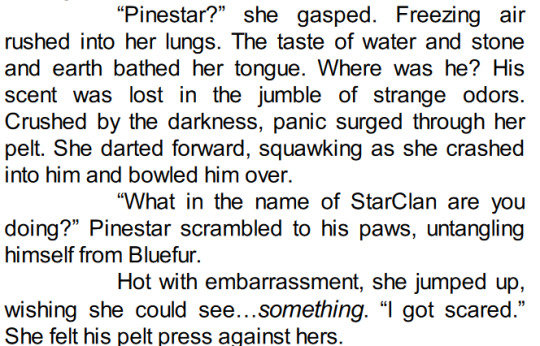
into the wild
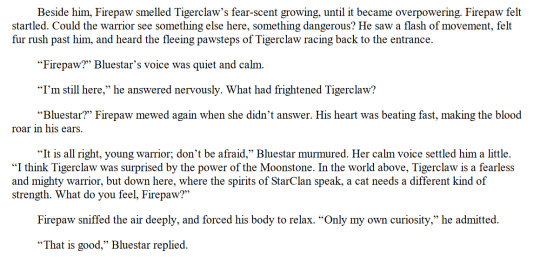
#deer reads bluestar's prophecy#she's someone who tries so hard to be fair#because you can line up her experiences with the main events of the first arc#rlly well done for the erins
39 notes
·
View notes
Text
day 20 - quote
"you are garroth, protector of the innocent, sworn to care and love for those in need"
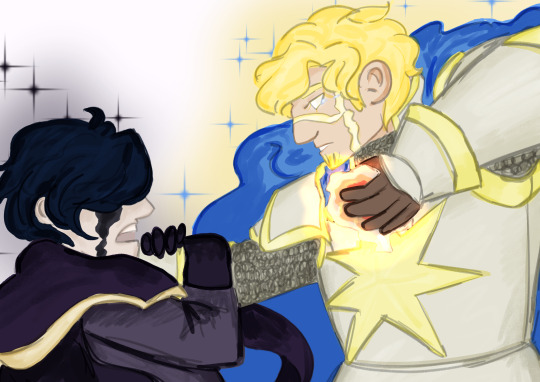
my take on what should've happened at the end of s1. context and uncensored image below the cut (tw // mild gore (blood splatter))
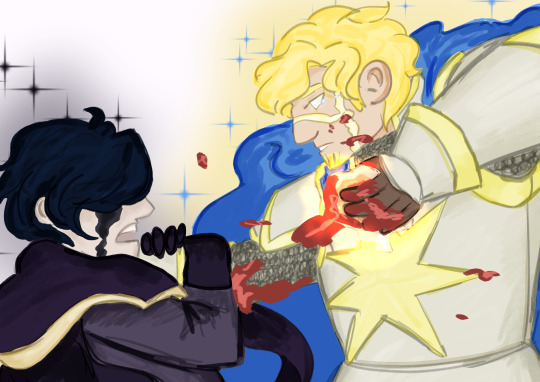
so uh... yeah. at the end of season 1 of ashes, ashes, garroth kills zane in irene's cathedral.
the setup for this series of events goes wayyyy back, back to the first war of the magi. in ashes, ashes, xavier was a divine warrior, the justiciar - i've talked abt this in a few of my other posts (specifically in this one), but essentially he founds the jury and carves off nine pieces from his relic to form the juror relics, which give the jurors their uh, for lack of a better term, juror powers. however, during the first ru'auni-tu'lan war (about 400ish years before the main story of ashes, ashes takes place), the relics went missing - leaving the jurors as little more than figureheads for a good few centuries.
then, about 20-25 years before aph shows up on the outskirts of phoenix drop, the high priest of o'khasis at the time figures out a way to give the jurors their juror powers without the relics via a blood magick ritual. said ritual is successful, but it upsets the balance of the universe so badly that the primordial gods intervene and sick a plague on o'khasis, killing roughly a quarter of the population and almost including lord garte ro'meave in that statistic (yes, this is the "near-death experience" that is cited as turning him from a kind-of-asshole into a right cunt). during the plague, a toddler-age garroth gets really sick, and goes for a wander throughout the ro'meave residence and ends up in the attic, where he finds a strange, glowing rock that seems to be calling out to him... he remembers bugger all of this, and what he does remember he puts down to a fever dream.
later on down the line, after nicole fakes her death and disappears about three or so years before the start of ashes, ashes, zane begins to show signs of what garte believes to be dissatisfaction with his regime, and in an effort to bring zane back under his control, he forces xavier's relic into his only remaining son. if zane had the spiritual constitution to wield said relic, this would be all fine and well, but because he doesn't, he begins to suffer the effects of relic corruption, which slowly drives him insane until he's the mad, devoted-to-his-interpretation-of-irene-and-her-doctrine-above-all-else, lawful-evil, war-criminal priest that he's introduced to us as during the wedding arc of season one.
then, during the battle for phoenix drop, garroth hands himself and the amulet over to zane in an attempt to save phoenix drop from a battle that he knows they're doomed to lose. and zane turns him into a juror via the ritual - and because garroth has (unknowingly) been holding esmund's relic in him this whole time, everything turns to custard, and garroth is rendered effectively comatose for pretty much the entire confrontation between zane, lillian, and the phoenix drop gang (aph, aaron, laur, and katelyn) - until zane moves to attack and kill aphmau right after she's absorbed irene's relic.
so you know how in starlight we're told that the relics are sentient? and you know how in starlight we're told that the relics have the ability to control the bodies of their hosts?
well uh. esmund's relic reacts to the threat against its matron that it senses. and with garroth essentially catatonic and in no state to fight back against the possession, he stands up, corners zane in a barrier, and rips xavier's relic out of his brother's chest - killing him almost immediately - before collapsing again, leaving the others to drag him out of the cathedral when zoey shows up with the portal. the entire time, zane is screaming at him to snap out of it, to remember who he serves, to remember who his brother is, and all the while the others can only watch on in horror as garroth condemns the one man hes spent the entire season trying to save to death.
garroth doesn't find out that he's killed his only remaining sibling (to his knowledge) until he wakes up two days later.
so yeah. ro'bro angst.
let me know if u have any questions! :3
#aphtober2024#aphtober 2024#aphblr#aphmau#minecraft diaries#aphverse#mcd#mcd rewrite#aphmau art#aphmau fanart#garroth mcd#garroth ro'meave#zane mcd#zane ro'meave#ashes ashes mcd#yes i stayed up until midnight to post this#yall have no idea how much ive been cackling like a fucking banshee this past week and a half while ive been planning this#nyehehehehehe
54 notes
·
View notes
Text
Undead Unluck ch.219 thoughts
[Big Dick is Back in Town!]
(Contents: immediate reaction - gushing, setting analysis - Clothy, character analysis - Chikara/Ruin)
This chapter is the perfect example of why I don't do numerical ratings. If last week I'd said ch.218 was a 10/10, that would carry the implication that it was the perfect UU chapter, that nothing could top it, and come this week I'd look like a fool! Nor am I willing to give 219 any such rating, because I refuse to believe that we've reached the pinnacle of what Tozuka is planning to show to us. However, my refusal to assign a number to this chapter should not be taken as indicative of my opinion on it, because, as I'm sure you've all guessed by now...
This is the best god damn chapter in the entire series so far!
That entire sequence, that eight-page span, with two of the most exciting and jaw-dropping spreads that Tozuka has produced to date, was an immediate daymaker. Fuuko sticking the five-point landing, the realization that she was back on the bridge where she and Andy first met, Andy's head dropping onto the bridge only for him to revive just like in the anime's interpretation of the same originally more low-key events of the manga, all culminating in Andy sweeping Fuuko off of her feet with the two most lovely and romantic smiles I've ever seen in ink put to page?! Like Andy bursting through Ruin's Bloodclot Ball and allowing the radiance of the sun to shine down on Fuuko, I too felt like my day was instantly brightened
And that's just from Andy coming back! Now that he's here to stay, I can only imagine what moments Tozuka's going to hit us with! Sure, Andy and Fuuko are gonna have the most romantically charged kiss in all of Shonen Jump's history, but that's a given! I can't imagine Tozuka's going to stop there, there's bound to be all kinds of great lines, action setpieces, character developments, and don't even talk to me about the catharsis of it all! Tozuka's always been good at wrapping up storylines in my opinion (not you, Kururu) and this was such an incredible payoff for the Andy is Missing arc that I just know the ending of the main plot is going to render me unconscious
But of course, the latter eight pages aren't the only things that matter here; sure, they're what elevates this to being my current favorite chapter, but don't be fooled into thinking that the rest of the chapter isn't an absolute banger in its own right!
Chikara
First of all, Chikara is, without question, the MVP of the Union. Juiz and Victor going through 456 billion years worth of loops? Nah. Fuuko raising the first complete and upgraded Union? Nope. Andy becoming hands down the single strongest Negator in any loop ever? Forget 'im!
Chikara's not invincible. He doesn't have eons of experience. He can't even use his ability offensively! And yet? Chikara always pulls through. Rip? Killed 'im! Summer? Killed 'im! Creed? Got his eyes crushed and his knees capped, and he still beat 'im, only to limp his way to helping everyone beat Spring too! Then in the fight with God, this kid loses his arm immediately upon the fight starting, but still manages to crawl his way forward to halt his approach from Fuuko!
Fuuko, Juiz, Billy, Shen, etc., they're all monsters, fighting prodigies or ancient entities unlike anything the world has ever produced, and Andy and Victor are so unkillable that nothing they do should be even remotely surprising. But Chikara? He's just a boy. Just yesterday his biggest concern was whether he was going to pass college entrance exams, and now he's getting his eyes chopped in half and not even crying about it! He just decides "this is unacceptable. I will not be a liability just because of something as petty as losing my eyes!" If you don't think that's badass, there's just no helping you
And why shouldn't Chikara be the toughest "normal" character? He was the first Negator that Fuuko ever recruited back in L100. He clearly means a lot to Tozuka and was always intended to be integral to the plot, and he has absolutely stayed true to that vision. I know I've ranked Chikara pretty low when compared to everyone else, but that is not because Chikara's character is lacking in any major way, he's always had one of the most compelling arcs in the story, and every time I think Tozuka is done building on him, I am delighted to be proven wrong
Speaking of characters that continue to surprise me...
Clothy
CLOTHY IS BAAACK!!! No wonder he wasn't around for Tatiana's fashion show, he never left Andy's side! You know what that means?
Clothy survived Ragnarok
Even when every other UMA was erased from existence, Clothy lived on, retaining his memories and his friendships so he wouldn't need to be tamed all over again! I mean, just look at how happy he is to see Fuuko! Poor little guy, I hope Andy changed his criteria for an ideal outfit to include "unconscious when not on Earth," or at least offered to if Clothy wasn't willing to wait the whole 4.6 billion years along with him
I once questioned where Clothy's core was, as he frequently gets completely engulfed and destroyed when Andy gets hurt, say by lava or whathaveyou, but now thanks to this, I finally understand
Because Andy is his wearer and Andy's ideal outfit is one that can regenerate along with him, Andy has essentially overwritten the core as a weakness: Andy has become Clothy's core. So long as Andy survives, so too will Clothy; without meaning to, Andy has already successfully externalized Undead
...Hey, that sounds kinda familiar, doesn't it?
Blood and Shadow
Oh yeah, Ruin also wears his UMA partners and shared his immortality with them! It turns out that I was wrong last week, and that Ruin does still have both Blood and Shadow, and unless I'm mistaken, it...looks like Shadow is his pants??? Or...maybe he's hiding in Ruin's pocket? The position of Shadow's attack and Ruin's leg makes it a little ambiguous, but honestly whether he's in Ruin pants or is Ruin's pants doesn't change the fact that it's a completely undignified position for a villainous entity to be in and it's very very funny to me
Based on the way that Blood seems to flow out of the scar on Ruin's body, I think that Blood has actively become Ruin's own blood and Shadow his...shadow. These are likely extensions of their own Rules, the same way that Clothy has to abide by the wishes of his wearer, but becoming a part of a self-targeting Negator's body would certainly justify coming under his Rule's effects. I also wonder if their presence is related to Ruin's new appearance; Soul calls Blood and Shadow "the powered-up pair," so their increase in strength may be related to Ruin's sizeable scar and loss of hair color, though there are certainly other probable explanations
Ruin's Past
Blood and Shadow's return have shaken the likelihood that this is Ruin 101 and not 100, but the lack of his Regulator status, his new appearance and Billy's read that Unruin doesn't actually allow Ruin to survive Ragnarok all greatly imply that this is, in fact, 101, even if he's somehow able to remember his past iterations
This week's chapter has given us the most insight into his character that we've ever gotten: that Ruin loves the world, but hates people. There are so many ways that this could have come about, but given the flow of the rest of the story, I think I have a pretty good idea
Ruin is already a pretty heavy inversion of the rest of the cast just by virtue of being God's servant, but I don't think that the parallels stop just with his status. Everyone else is God's enemy because the awakening of their Negator abilities were all tragedies that they blame God for, so what would motivate someone to become God's ally instead?
What else could it be but for Ruin's awakening to be a blessing that he thanks God for?
Let's say a child is born in some small, superstitious village. The baby is quickly observed to be harmed by sunlight, and within two years it has grown exceptionally sharp canine teeth. I don't think they'd wait to find out if it's allergic to garlic before tossing that baby out - that thing's a vampire, after all!
Now maybe the baby wasn't cast out into the wilderness. Maybe just a church or a religious orphanage that refuses to believe a child is evil without observing any bad behavior first? So the baby starts to grow up, gets to be a child or maybe even hits adolescence; all the while, the families in town have avoided the vampire, giving him dirty looks when he comes out at night, scrutinizing every little thing he says and does; they all know that one day, he's going to bring the village to ruin. Only the priest or a nun or whoever believes he's human, and assures him that this is all a part of God's plan, that he will do great things someday
Then something happens. Tragedy strikes. And whether the child was involved or not, whether he was anywhere near the scene, it's all his fault. And the townsfolk have had enough
The church is destroyed. The priest is killed. The child can only watch as everything he holds dear is taken from him; his eye or his body wounded and bleeding, his hair rapidly losing color from the trauma, the light of the sun burning his very flesh away, his life lies in ruin
As his consciousness fades, hatred bubbles up inside. With his last breath, he wishes to punish those who ruined what little hope he had in life, those who defied God's plan, those who broke the rules. And then...the pain is gone. The scars remain, but the boy's body is no longer broken. The Blood no longer spills, and a Shadow shields him from the scorching sunlight. Though his past is set in stone, the boy can no longer be brought to ruin; and with this new power he will enact God's will and put right the world that humanity has harmed - it will be Unruined
At least, that's how I'd write it
Ruin's Present
Tozuka probably has different plans for the specifics, but I expect Ruin's backstory will have some elements along those lines, with him feeling like God is his savior and humanity being the ones ruining God's plan for an ideal world
Someone on twitter pointed out that Fuuko once said that the Rules themselves aren't inherently harmful to humanity, that it's usually people who abuse the Rules to do harm. This is likely the same conclusion that Ruin came to, and took that sentiment to its logical extreme - since Negators, who are humans, defy, enslave and kill Rules, humanity are the evil ones, and they must be stopped
Ruin likely believes he's the hero of this story and that the UMA are the victims! That would make sense, as the only characters he's emotionally attached to are UMAs! They're probably his family! While visually Ruin is the anti-Andy, morally he's the anti-Fuuko, fighting to protect as many of the Rules as possible, as they ensure the world keeps turning the way it's supposed to!
No wonder he killed Fuuko right after the Spring fight last time! She triggered Revolution!!! She sent his beloved world hurtling into the sun!!! That is ultimately a good thing from his perspective, as it means that God can come down and wipe the slate clean, but that's only a good thing because so many UMA are already dead! This is God's opportunity to reset the world to how it should be, the way it no longer is because of Fuuko and the Union
But from Fuuko's perspective, Ruin is one of the people who abused the UMAs. He had Blood, Shadow and Ghost rounding up people to use as sacrifices and taking hostages for blackmail. He was serving the misanthropic God that reveled in humanity's suffering. He was the reason she now had to go back to make sure that the world was reset to how it should be, with all of the people she loves in it, the way it no longer is because of Ruin, the Rules and God
Buuut maybe I'm getting ahead of myself again. I certainly don't want this to be another Kururu situation where I write up a whole backstory that we never get to see, and I'll definitely feel foolish if I make Ruin out to be a secretly heroic figure from a certain point of view only for it to turn out that he's just a bloodthirsty killer using faith as an excuse to cause mayhem. But I can't help it!!! Tozuka's characters are all so interesting to me that I can't help but want to look at them more closely and try to puzzle them out myself! It doesn't matter if I'm wrong, I just have so much fun thinking about them!
Conclusion
The mystery is part of what makes it compelling. This has been true since the literal beginning of the series, which I think is part of the reason I've been such a diehard fan since day one. Chapter one made us ask "who is Andy really? Why are there Negators? And how will Fuuko help him die?" Chapter two made us ask "what's a UMA? Who are the Union?" Chapter five made us ask "why AREN'T there any stars??" I've been so engaged with this series from the get because it only gave me what I needed to know in the moment and teased everything else, a tradition that it's clearly kept up 200 chapters later!
It's never been perfect. Sometimes details that should be given aren't, or are given in external material that a lot of fans may not see. It's not a 10/10, because there are certainly "better" manga out there and even they aren't 10/10s
But it is my favorite
Even when it doesn't give me exactly what I want, it always resonates with me. I always feel a deep connection to this series, to this world, to these people, and I want to deepen that connection as much as possible. Even if Tozuka won't tell me everything, what he does tell me makes me want to know everything, to be closer to what I love so dearly. That's how I enjoy life, and I'm grateful that Tozuka has given me such a great avenue to do it
Until next time, let's all enjoy life! Welcome back, Andy!
19 notes
·
View notes
Text
An informal essay/rant on Samurai Jack S5
I love Samurai Jack, for the most part. But my biggest gripe is how season 5 turned out.
Despite the artistic achievement of season 5, the main issue was how rushed it was. With only 10 episodes and still having to deal with the 50-year time skip, many characters feel underdeveloped.
Take Jack as an example. Jack's change was the most drastic yet resolved the quickest. 50 years of a battle with no end in sight is incomprehensible to a normal person, and winning seems impossible at this point for Jack. Understandably, depression, guilt and anxiety have taken over Jack, especially after he lost his magic sword. The voices in his head and the vision of the phantom samurai are evidence of his mental decay. But as a mental health struggler of many years, it feels like Jack's mental struggle should have been way past that stage. Though it should be said that everyone experiences these mental health struggles differently, it just felt less realistic as Jack's descent was not documented well enough. Depending on when his descent started, it could have very different results. Many things could happen in 50 years that would affect a person's outlook in life. It could be total despair: Jack finds no way of continuing and believes that he has completely failed. It could be dutifully depressed: Jack no longer considers himself righteous but still carries on out of habit. It could be blind optimism: despite losing the magic sword, Jack thinks, "Hey, I have fought for 40+ years. I could still do this!" Are these outcomes sound? No! Because there is no development for Jack to prove that they are sound. It also doesn't help that Jack's characterisation is so consistent in the first 4 seasons that jumping from level 1 to 100 in depression for Jack seems improbable and leaves the audience to imagine what happened. After all, depression and anxiety often do not originate from a singular event and build up gradually. Sure, I can buy that Jack is depressed, but I cannot buy that it can be resolved within 7 episodes, with half of that time occupied by Ashi's arc.
Speaking of Ashi's arc, her arc demanded the most time yet is the most unrefined. Her character has simply bitten off more than it could chew for 10 episodes. Within season 5, she went from being a daughter of Aku to an ally of Jack to Jack's lover. Each of these changes can be at least 10 episodes on its own. Especially when she has to undo 20+ years of conditioning, and completely acknowledging that she is on the wrong side of the war is bound to take a toll on her perception of reality. Yet it was resolved as quickly as 6 episodes, thanks to finding out, "Wow, Jack is actually a good guy and helped so many people!" This part of the arc was resolved because of Jack. So naturally, she becomes Jack's ally and then becomes Jack's lover. There is a terrifying idea that lurks in Ashi as one comes to realise that her entire personality revolves around Jack. In other words, if you remove Jack from Ashi's life, she becomes nothing. It is also deeply worrying that Ashi lacks emotional maturity and development as she "falls in love" with a man she has only met for maybe a week (not to say Jack is not also immature here). Her lack of independent development makes her character flimsy and frankly disturbing. She is literally made to become Jack's love interest. There is some irony in one of her final lines in the show; she says, "Without Aku, I would have never existed" when on a meta-fictional level, she would not have existed without Jack.
Character development is crucial in crafting the themes of a story. The above tackled the lack of character development leading to weak characters, but there is one thing that will determine the legacy of the story, the ending. Though it is often commented how Samurai Jack's ending was unfulfilling, it is not true that unfulfilling endings are bad. (Minor spoilers for True Detective season 1) True Detective season 1 did not end in a fulfilling manner, as it did not resolve all of the mysteries it brought up. That wasn't a huge issue as it complied with the genre of strange fiction and the theme of the world being a strange and inexplicable place that evokes more mysteries than it explains. Samurai Jack's ending and, thus, the conclusion to Jack's arc promotes the idea that overcoming one's weakness, sacrificing for the greater good, and bringing justice will not bring you the happiness you deserve... Which does not make sense relative to Jack's character development and characterisation. Jack is often characterised as a selfless hero and a bringer of hope. And the people benefit greatly from his aid. The only person who often does not benefit from this is Jack himself, who often forsakes his opportunity to return to the past in favour of saving the people in need. The show promises that Jack will find peace and happiness when he fulfils his destiny of defeating Aku. And with the classic hero's journey-type story Samurai Jack has, the show rips it apart at the very last moment, with no warning whatsoever. It wasn't a comment on the genre, as it did not deepen its themes. If one wants to turn Samurai Jack into a "we don't always get what we deserve" (please don't) story, then make fate truly cruel and unkind and provide Jack with no divine help in the story. Again, with the irony of Jack's tea being unbalanced, the show is unbalanced, too, as it rewards a suffering protagonist with more sadness and suffering at the end of his story.
Despite what this blog is about (it's art, by the way), art and aesthetics are not everything. Samurai Jack as a whole is beautiful aesthetically, but the rushed story and an unfulfilling legacy feel like a shame. Characters did not have the time to grow in complexity or realism, which made the audience feel disconnected from the characters. I wished I could see Ashi grow and develop into something more than "Jack's love interest". Or they could even develop into something that is not romantic, such as a mentor and apprentice story, which could be as, if not more, interesting. Having more refined characters creates a more refined theme that, if done right, can stir the right emotions in the audience that impact them for a lifetime.
Samurai Jack season 5 had a lot of potential but just couldn't deliver.
16 notes
·
View notes
Note
so, apparently there's plenty of death symbolism/metaphors surrounding, are you interested in elaborating that? including "indirect" death like spiritual death, character assassination or death of identity, somethjng along those lines?
- death symbolism surrounding Taichi, sorry, somehow I pressed ask , sorry for my blunder
It's fine, no worries, I already assumed that it was referring to Taichi! If you think about it, several characters in Digimon Adventure have been dealing with the subject of "death" one way or another, most in direct association with someone (human or Digimon) close to them.
Now, if we look at our favourite main character, riddled with traumatic childhood experiences and questionable coping mechanisms, there is a bunch of instances where he had to deal with the potential of death happening in front of him or CAUSING death himself - either to others or himself -, so it should not be surprising that, at some point, he may have dissociated himself (mostly subconsciously, I'd say) from being a Chosen Child. Whiiiich may or may not have led to Kizuna's events, but yeah, it's count the instances first, shall we. TW: death, mental health.

The whole Hikarigaoka incident: While Hikari was scared too, she was still much younger than him and couldn't grasp the implications of what was happening there, while Taichi did EVERYTHING in his power to protect her and himself from not getting crushed by the two Kaijus in front of them.
Him almost causing Hikari to die due to his (still existing) sense of childlike innocence: Yes, she was sick, but he thought she was already on the way to recovery and only took her to play football to cheer her up. That's where he first had to face that good intentions don't always lead to positive outcomes...
The SkullGreymon fiasco: Again, he intended to do good for the sake of the group, but overlooked the bigger picture and became reckless, thus causing his partner to evolve into a literal symbol of death and decay in the process. Something that may have happened to the ENTIRE group if the Digimon hadn't run out of energy...
The electrical fence and its aftermath: This one has several follow-up points, but I still think it's suitable to summarize them all here - first of all, there is him being confronted with the idea of actually dying by getting electrocuted after he was 100% convinced that nothing they did mattered, since they were "just data in a computer". Once again, he was being reckless and careless - not only did it lead to almost killing himself, but in extension, also dooming Sora, whom he failed to save. Overcoming his cowardice, finding his own sense of courage eventually led to victory - but also led to him disappearing and roughly 50% of the remaining group ended up thinking that he had actually died in the process. Meanwhile, he was back in the real world and had to choose between saving only himself, or everyone else as well... And we all know how the answer to this turned out to be.
Him almost causing Hikari to die AGAIN: Of course there have been several instances of death before and after they re-entered the Digital World again, leading to the eventual "fallout" between Taichi and Yamato in regards to how they should deal with the immediate danger at hand... But the most devastating instance here was Taichi reliving his early childhood trauma, fearing that, by taking Hikari with them, he made the same mistakes again, acting thoughtlessly, not considering the circumstances... He has been acting self-sacrificial for the sake of the group before, but it's this arc that shows that he is actually ready to die if he can at least manage to save everyone else in the process (hence why he ended up fighting with Koushirou as well, because Taichi forbade him from taking on any pain himself and Koushirou was having none of it).
Let's not forget that, during the events of Our War Game - and all the follow-up movies, especially Diablomon Strikes Back -, he was also under immense pressure: To save the entirety of Tokyo from getting blown up by a missile and every other side-effect that Diablomon may have caused in traffic or elsewhere... And once again, his own hotheadedness may almost have caused his partner to get killed, to the sense of guilt plays a huge role in here as well...
02 portrays Taichi as matured, it showed that, while he still occasionally needs to get reminded of it, he KNEW that he has to make uncomfortable decisions sometimes; of course he almost despaired when his partner was being captured and corrupted, but he also realized that he may have had to sacrifice him for the greater good; he needed to remind Hikari that the new kids never had to deal with the same kind of death exposure before, but warned her - with quite a grim, but serious expression - that they would have to face it eventually. He grew aware of their duty throughout all this time, through all these experiences, and it's not pretty, but at this point, he was still ready to act.
Tri picks that point of the story back up again by mirroring Meiko's fate with his own - at least to some degree. Once more, they had to face the possibility of having to kill a beloved partner Digimon and at this point, Taichi was questioning whether or not recklessly sacrificing infrastructure and lives for the sake of fighting was the "right way" to deal with everything. It may have felt a bit like recycled conflict at this point, but it's been several years by now, and Taichi is, overall, contemplating his life choices, contemplating his diplomatic future, the status quo AND his "duty" as Chosen Child.
It's through the course of Tri that he: Watched parts of the city get destroyed ONCE AGAIN, almost died through the course of several fights and an earthquake-like blow, had to witness his teacher - whom he greatly looked up to - sacrifice himself, covered in wounds and blood, to save him AND their missing friends... And all that after Daigo told him that they lied to protect them and that he should move on and create a better future... Thus, Taichi decided to go for the kill again. Again, he didn't like it, again, he got reminded by Hikari of all people how terrible it all is, but he knew that he had to.
Kizuna chose a similar premise to Meiko's once again - first of all, if we look at everything above, is it really a wonder that Taichi probably developed some fatigue? We all know, see, can tell how much he loves Agumon - hence why he did end up horrified by the prospect of losing him. And as I pointed out before, he did use the fighting for the sake of having a purpose, because... Who else was he if he couldn't "lead" anyone anymore?
And since the rest of his young adult life was pretty directionless... Can you really blame him for it? The amount of nightmares, the tiredness, the PTSD the previous experiences may have caused in him could never be treated by a "normal" therapist - who could ever relate to all of these things that sound incredibly supernatural and like nothing an adolescent should have shouldered all by himself? Heck, he isn't even able to talk to his friends about it at all (even if stageplay!Agumon told him to!), just swallowing it all by himself, dealing with the thought spiraling in his head on his own.
Hearing Menoa tell him that she lost her partner, making it all sound like a huge punishment for making the wrong choices... It may have rang several alarm bells in Taichi. How often must he have dreaded making the wrong choices? How much guilt must he have felt for the sake of Hikari, Meiko, Daigo, everyone he temporarily let down by hesitating or acting out in the wrong moment, let it be Yamato, Sora, Koushirou, Daisuke... Now there's this young woman who asked him to figure out a way to fix a problem she couldn't herself, a problem that may separate him from his soulmate forever and for what? Because he grew unsure of himself, because he faltered, because looking at all his friends, who found their paths, had become painful and tiring. Because, even after coming to temporary answers, he didn't know who he was and who he wanted to be anymore.
He had to choose to fight so many times, he sacrificed himself as much as he could. Then there was the prospect of fighting Menoa with two possible outcomes: losing would lead to his own death (or "loss of self" since he would have his consciousness be trapped forever in a neverending dream of his childhood), winning would lead to the death of his partner anyway... It must have been dreadful.
When it comes to the different kinds of "deaths" you mentioned, I will try to summarize this quite shortly, even though they're definitely interesting angles.
I believe that a "death of identity" is basically what I have outlined above - while it mainly focused on Taichi's (decline of) mental health, which may also have resulted in a tendency to isolate himself, Taichi's journey is basically some kind of Lion King analogy, where he starts as your typical head-through-wall protagonist, but has to deal with the aftermath of cowardice and the consequences of his choices - and does so by running away from the pain FIRST. From himself and his responsibilities. He also could have chosen to let Menoa win and let his consciousness be turned back into that of a carefree child... But he chose not to let that happen.
Because deep down inside, there IS his path. There are his values, his persistence, his belief system. He's been on the brink of a breakdown, but it's all there. Hence why I really, really, REALLY want to WATCH him getting to his "Simba strikes back" phase at some point, since we only ever saw it implied by the end of each, Tri, the stageplay and Kizuna. We KNOW he will push back, but we have yet to see in what way, if he ever got therapy and how he's actually doing - mentally, physically, spiritually.
Speaking of which, "spiritual death" is a bit harder for me to grasp in his context, but considering how his sense of guilt and fear of cowardice have led him to (temporarily) turn away more and more from his true self, his natural sense of courage and more positive, outgoing attitude... It all leads me back to him having lost his sense of self. I will never forget the feeling of how my stomach dropped during the "depressed adult" scenes in Kizuna. Again, I want to give this movie props for depicting adulthood like that, but it really hurt and felt way too relatable.
And I guess in this sense, we can also talk about "character assassination", because... As you may have noticed, I have linked quite a few analysis posts in this answer, because I have been trying to analyze and understand Taichi for MONTHS now. And sometimes, I feel like I may be trying too hard - who knows me also knows that, while Taichi is one of my favourite characters, I also have my fair share of problems with the AMOUNT of Taichi suffer p*rn in the OG timeline (and I still maintain they only made Taichi as generic as he was in the reboot to avoid these allegations). Some may argue that it's all over the top and that they keep recycling the same conflict (for him and in general) over and over again for the sake of even HAVING a plot to revolve around (which also wouldn't contradict the epilogue too much and actually leading towards it eventually).
For me, it has been interesting to look at all of this in context, as heartbreaking as it is sometimes. Mental health is a serious issue and watching a character like Taichi experiencing at least some form of implied depression after everything he went through tells you that everyone can get affected by this. Even if your experiences won't involve several instances of near-death-situations, even if you are resilient and have a lot of social, mental and physical resources to deal with set-backs or intense, difficult situations... It may still happen. And it's important to show that there are ways to deal with it as well as you can. That there is hope, even if things are not 100% alright.
19 notes
·
View notes
Note
25 for any character I wanna read your ramblings
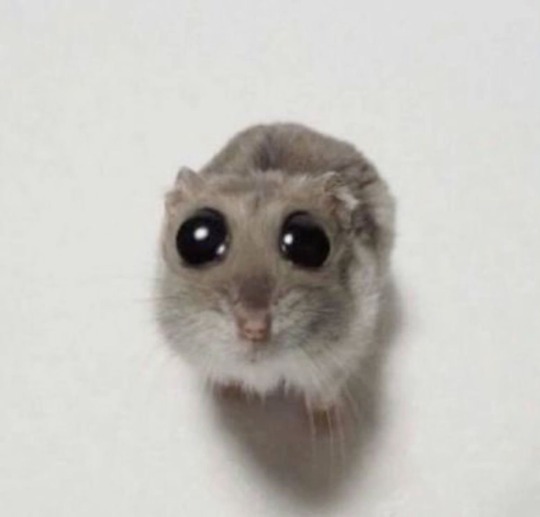
25. What is your favourite thing about your OC?
Wow. Dill asking a non-angsty question from an angsty OC ask? That's crazy man
Below are 29 OCs that I'm currently using enough to have favourite bits about them. Enjoy
A Hat in Time OCs
Horalo AU Skyscreamer: Baby girl. Favourite thing about her would probably be the fine line I have to walk between being a kind, caring woman and a motherly figure while writing her. Sky is supposed to be the cool older sister and it's a lot of fun to portray that in writing! The Flower Man: His dialogue. I fucking LOVE how this man speaks and it is so much fun to write. Also taking his lore out of context. He canonically has the most rizz out of anyone in the Horizon and it is my favourite fact about him. King Moonjumper: His personality specifically in the currently unreleased Act7. He likes playing himself up, seeming like a big threat, and then the moment something doesn't go his way he has a meltdown. He's so silley.
Wanderer AU Ester: I have a scene from the ending of Wanderer doodled out where Ester and MJ are standing in the frozen remains of Subcon and they are holding hands. It's just something about her being a scared, sassy, almost insignificant child, especially when put up next to characters like Graves or Snatcher who are much more lore-relevant, and yet she stays MJ's closest companion and most trusted friend throughout the entire story. Gravedigger: Absolutely anything that can draw more parallels between her and Gleb, the character she takes the role of. Mourner/Cathrine: Saying my favourite part of her character is that she gets my favourite song from Anastasia feels like cheating, but it's definitely up there. Probably her loyalty. She is, above all, loyal to her homeland, and refuses to let that part of her go after the freeze. She's one of the few characters not really running away from her past, but instead slowly coming to terms with it. Count Adrianne: He's a perfect example of a complex character who seems very simple on the outside and I love him for it. Either that or his relationship with Snatcher. They bicker like siblings because they were both older siblings before dying and are projecting on to each other and it's very silly.
Misc. Anya: Ouuugh. That's a hard one. Favourite bit about them is probably their coping mechanisms. They are so good at taking things at face value, accepting them, and then watching everything else devolve into chaos around them like a sitcom without doing anything to help. They speedrun the 5 stages of grief just so they can make fun of everyone else and completely fuck themself over in the process because they don't actually learn how to cope Kaizo: He's a whore what else can I say
Hollow Knight OCs (The Religious Trauma Squad)
Gospel: Her lore! She's so fucked up <3 Edge: One of the big things about RTS is that the main three characters go through very similar character arcs, but they're all in different stages of it. We first meet Edge at the end of his character arc, where he's already decided that most gods are assholes and he doesn't owe his devotion to anyone. Then, during the rest of the story, he gets to watch two other people experience similar events, and it forces him to help them because he doesn't want the to go through the same things he did. It's just a fun dynamic of him already knowing who he is and his heritage and being comfortable with that, and now helping others learn the same thing. Marion: His absolute and total devotion to the troupe during his time in it, and his relationship with Gospel after he gets kicked out.
Ivy
Jenny: She (in a way) dismantles the idea of a "Chosen One" hero and I think that's pretty neat. Morgan: She's just silly. Couldn't tell you why, I just really like her. Myo: They are a BITCH. Lying little bastard and I love them for it. They would murder someone, turn around, and go "I'm just a little guy it's my birthday you wouldn't punish a little guy on his birthday would you" and it would work. And, as the actual "Chosen One" of the story, it's fun to see them go over the edge trying to be the special main character.
Project Scepsis OS
Paisley: They don't let their past traumas and experiences define who they are and I think that's really neat! Marci: It's practically a self-insert and those characters will always be special to me. Also, it's just a blob. What's not to love? The actual answer is its story arc where it nearly kills Sonemeir on accident and traumatizes them both for life Kat: Her species as a concept. The idea of a shapeshifter who has to eat something to shift into it is fascinating to me. Prof. Sonemeir: He is so fucked up in so many ways. Dude has been through the horrors(TM). His entire character deals with the idea of legacies and how what you create will last longer than you will, which is really funny because he hates everything he's created and it will haunt him for the rest of his life. And also that aforementioned arc with Marci Creator: His character design. He is very fun to draw :)
ET's Coffee Shop
Phoebe: She is the best example of "some normal dude who got wrapped up in everyone else's shenanigans" and I think that's very funny. Also the fact that she is destined to kill her entire family. There is no escaping fate around here Altalune: Oh my GODDDD I am INSANE about this man. Definitive favourite thing is his character design, I fucking love his character design it is so good and so much fun to draw, but I have to shout out his relationship with ET because it's my favourite part of the entire story as a whole. Stopwatch: Everyone else in this story, including the two main antagonists, uses more traditional or magic-based weapons: Phoebe has daggers, Altalune and Tristen use swords and magic, ET has shapeshifting powers, stuff like that. Stopwatch, on the other hand, has a gun. Cirsten: She is too good for this world. So incredibly loving and caring of everyone at all times. Her and Audun are the best romantic relationship I've ever written and they make me so happy. Tristen Kannaroe: The way his name sounds. It just rolls off the tongue so nicely and it fits his character so well. And his character design. He looks exactly how he acts and I love it. Also, his couple hundred horrific "deaths" and the fact that he is immortal because Alta won't let him die. ET: I feel like I could say "character design" for every single Coffee Shop character and it would work. They're all so good. Anyways, ET's relationship with Alta and ET's death are my favourite bits. And also that he's kind of an allegory for neurodivergence. TQ: Character de- I step on a banana peel and comically fall down the nearest set of stairs. Seriously though. I have a bit running where all of the deity/god-like characters are drawn in a different style, and TQ's is lineless. They look so good in that style and I love drawing them. Personality-wise, I love how incredibly objective they are. They're so blunt and honest at all times, especially with Alta. It's really funny to see Alta try to justify his actions to TQ and them going "Okay but you did just level and entire city" Ayabe: Their backstory and their relationship with Stopwatch! Their magic is also cool as fuck. Crumpet: Yeah it's character design again
#Listen man. The character design of Coffee Shop is some of my proudest works. They're all so good#Marci Answers#Ahit Horalo AU#Ahit Wanderer AU#HK Religious Trauma Squad#Project Scepsis OS#ET's Coffee Shop#Okay. Because I like hiding things in the tags I will put two more bits here#Edge has commandeered Infinite as his theme song. Which is another of my favourite things about him#Yes I have done lyric comics with him#And the whole thing of Flower having the most rizz? Yeah Flower Man fucks canonically#I like bringing that one up without context
3 notes
·
View notes
Text
One thing about TME’s manhwa that I like is you can tell the artist listened to people’s criticisms of the original story and created a story that actively addressed all those flaws, therefore creating a story that’s much better than the work that inspired it
Lyla isn’t constantly bemoaning her situation or taking actions that seem dumb, such as insisting on the idea the royal family should just magically print money after just being scolded for that exact line of thinking because of the effects of inflation (whereas in the manhwa Lyla’s like “oh shit that’s illegal to do? My bad” just as the narrative calls her out for being the leading cause of inflation).
Lyla’s obsession with Fian also (thankfully) gets mellowed out and more focus is put on her relationship with other people - including characters like Phillip, Rosalyn, Odelia, etc - rather than her overdependence on Fian for happiness (siiiiiiiiiiighs). The only thing I miss is that this means she doesn’t get as many interactions with Paris which was one of the relationships I actually really liked more in the novel than in the manhwa.
The Emperor and Empress are still shitty people, but it’s hard to truly hate either of them in the manhwa when you can tell where they’re coming from whereas in the light novel they’re honestly not redeemable and I’m glad Lyla took vengeance on them. Characters like Angelina and Odelia are also fleshed out more in the manhwa, though Tyrone is more fleshed out in the light novel.
The inclusion of Daniel/Ellie, Rosalyn/Phillip and Paris/Helene in the main plot is actually so welcomed and clever. The fact none of these relationships are canon to the original story yet have so much chemistry is bamboozling, especially because it’s Helene’s playfully hostile relationship with Paris that made me drawn to this story in the first place.
I also like that Phillip was lent more staying power in the manhwa narrative and that he became intertwined with Fian in seeking Lyla’s affections, so much so that for once I like that a second male lead with no chance exists and he feels like a character that isn’t a waste of time to the plot. Light novel him in comparison felt underwhelming, though him teaming up with Helene in reforming Belliana was a dynamic I enjoyed
Also the manhwa plot is is very well crafted because it takes the same events that happen in the LN - from Odelia and Helene’s fight over the hunting festival’s rewards to Lyla’s savior hood of Phillip and Ellie - and threads them into a much more cleverly cohesive narrative, with every addition made to the story - such as Fian’s accompaniment to Lyla during the runaway arc or Helene “randomly” seeking Lyla out to have tea with her - enhancing the story’s experience as a whole.
I think the only thing the manhwa has done better is showing how certain characters think and operate. Also Paris is, imo, written a bit better in the LN, if only because he’s genuinely understandable and sympathetic and his interactions with Lyla felt meaningful and it sucks he got stripped of his time with her (though on the other hand him getting more moments with Helene more than makes up for it lmao).
Also I kind of liked the politics and engagement of modern values in a more conservative world in the LN and while it went a bit over my head, seeing stuff happen like Helene becoming the Chairwoman of a cabinet of advisors that helps doing stuff like distribute territory seized post-coup was just,,,, wow,,, I really think it was interesting to see Helene dismantle the empire she grew up in out of disgust for its outdated and harmful practices and I’m curious if manhwa!Helene will do the same since the manhwa eliminates a huge portion of her motives to break up the Belliana Empire (I.e the practice of polygamy and how such a practice basically fucked up her life and Lyla’s as well as the Belliana traditions that lead to ostracism and generational trauma).
#TME LN#The Mighty Extra#I might sound like I’m being harsh on the LN but I did honestly enjoy it#I may or may have not started skimming after around chapter 150 but it had some really great moments#the biggest surprise was that I really ended up empathizing with Paris to the point I wish the manhwa talked about him more#I get that his light novel self is a different person but him feeling cut off from the world and maddened by his insomnia was neat to learn#also him not being a people-person and only wanting to take the throne bc he thinks it’s what he wants tracks real well#I really enjoyed him being Helene’s parallel in that he’s obsessively overprotective of Fian but wouldn’t do anything to stop Fian from lov#just the same way Helene is overprotective of Lyla but doesn’t stop Lyla from loving Fian#and I’m still mildly miffed at the missed potential of Helene and Paris bonding over that as big siblings-in-law#also miffed over Paris not getting more time with Lyla but that's for another post in q lmao
1 note
·
View note
Note
Oooooo, how was Moria manipulating Nova’s powers? That’s an intriguing plot point :0
ayyy hi again!! 💖💞 so there's a lot going on with this situation, hence why i didn't state it all on the art post. but since you asked, here it is!!!
warning for long wall of text, so i'm hiding a good chunk of it under a read more ;v;
--
When Nova was away working with Blackwatch, Moira was tasked to assess her condition prior to doing any kind of work. However her "assessments", in reality, were her performing experiments on Nova to explore and amplify the capabilities of her cosmic make-up. After all, she's comprised entirely of an anomalous stardust, so this meant the fundamental elements of her body are pretty much different than that of a normal human.
Gonna backtrack a little bit to some OW lore stuff for context: Reyes personally recruited Moira for advise on genetics—and from what I recall correctly—he was being experimented on by Moira (knowingly, because he allowed her to) even prior to the events of Retribution it seems. So he's more or less aware of what she can do anyways.
Nova had a more indirect-ish involvement with the main BW team, at least initially, because she was supposed to be reconnaissance (aka scouting out enemy lines and delivering intel, nothing more or less) rather than an on-field agent. This meant Moira wouldn't get much out of research with Nova. Even then, Moira was also given orders by Reyes not to do any work with her because she was still heavily involved with Overwatch/Morrison's side.
Then, this all kinda changed when Reyes started roping Nova into joining field missions. Reyes finally gave Moira the green light to work with Nova, but again, strictly for evaluation purposes and not for experimentation. (But would she ever listen to that? I think you know the answer.)
Now that Nova started becoming more involved directly with the team on these few occassions, she began to arrange meetings with Nova in her laboratory to do some work with her. Of course, that was granted she didn't divulge this information to both Overwatch or Reyes himself, even. Nova's Blackwatch arc was a time where she felt vulnerable, and fearing an array of possible consequences that were in her head, she relented and gave into silence about Moira's doings.
She spent the next several instances partaking in missions, exhibiting strength far beyond what she was showing back with Overwatch. No one blinked an eye—although those like Cassidy and Genji, the two whom Nova was more friendly with, slowly began suspecting something was amiss. While everything went well at first, Nova later began showing grave side-effects, such as being unusually fatigued or losing control to the point where she wouldn't be able to move her own body. During one mission, she was close to instilling a drastic amount of environmental damage if Genji hadn't taken the risk to intervene.
Her unusual condition would carry onto her way back to Overwatch's base, concerning her teammates there. Morrison was bewildered at how Nova's condition worsened if she was only supposed to be recon, and by the final stretch of her term with them, she finally admitted that she had taken up field work outside of her scope as recon.
But what she also failed to mention at that moment was Moira's experiments on her. Nova was effectively removed from BW prior to the events of Retribution, and had to spend a period of time recovering before working with OW again. Soon, the potential exposure of Blackwatch finally revealed what the genetecist had done to the young agent, and Nova had to live with the guilt of keeping her silence for a long time.
#ask luo#overwatch oc#luphorics oc: reni lucero / nova#this is a LOT but yeah#ive been revamping parts of Nova's lore hence some of my rambles are gonna be#pretty different from what some might remember but yeah
1 note
·
View note
Text
I’m honestly living for the way that Leopardstar’s SE shared a lot of similarities to Clear Sky/Skystar’s character! Although I hate his guts and frequently want to punt him like a football during the first half of DOTC, Clear Sky had a really interesting, in depth redemption arc. And what makes it so great is that I, as a reader, didn’t really forgive his actions during his redemption, and that’s the thing: morally gray means that there is no right or wrong answer, that there’s not a clear line between good and bad, and that the character cannot be uniformly labeled as a villain or a hero. What I mean by uniformly is that every reader will have a different opinion on the character, so we can’t call them a villain like Tigerclawstar or a hero like Firestar, because they could be considered both simultaneously or even neither of the two!
The concept in particular that I’m talking about in Leopardstar’s honor is the dilemma of doing bad things with good intentions, hurting others when you genuinely believe you’re helping them. And the point is that responses vary based on individual experiences and perspectives, even if everyone was present at the same event. For example, in the earlier manga A Shadow in Riverclan, most cats in the clan decided to forgive Leopardstar for putting them through Tigerclan because they believed that the fault was on Tigerclawstar and she was just as helpless as they were. That’s one perspective based on what those cats personally experienced. Then, there’s Feathertail, who no longer feels safe in Riverclan and does not forgive Leopardstar, and she ends up isolated from the clan because they don’t share HER perspective. In her experience, Leopardstar had accepted Feathertail and her brother being killed, and she watched Stonefur get killed for being the only cat to defend her and her brother. These are both valid perspectives, and ultimately both reactions are also valid. But here’s the thing, someone’s intentions do not change the end result, nor do they erase the harm done. The phrase ‘the road to hell is paved with good intentions’ describes both characters very well. Bad people can have good hearts, and those characters are the epitome of the redemption arc. They may not be villains, but sometimes their actions are villainous. Unfortunately, you cannot separate a person from their actions, so accountability is crucial, but at the same time, that person has the potential to be more than their past.
So, how did Leopardstar and Clear Sky grow so different from the cats they intended to be? How did they go so far without realizing they were wrong? I think both characters can be broken down to two main flaws:
1.) A person in my life who reminds me of these two once asked me “can you really ask more of someone than always doing what they think is right?” and the answer is YES. The answer is that you can ask them to listen to the people around them who are close to them, who are trying to help them, and who they are hurting. You can only plead ignorance until someone tries to inform you, and if you choose to ignore them and continue, you’re no longer innocent. This was the downfall of both Leopardstar and Clear Sky. In the case of Leopardstar, both Mudfur and Crookedstar tried to set her straight from the very beginning, but she was too proud to accept the criticism. She made the conscious decision to ignore Mudfur’s advice and from that point forward, we couldn’t give her the benefit of the doubt. In the case of Clear Sky, his family and friends desperately tried to reason with him, especially Gray Wing. There was a time when Gray Wing was literally the only cat outside of Clear Sky’s group that hadn’t given up on him. Clear Sky made the conscious decision to reject Gray Wing’s reasoning.
2.) Their pride causes them to recoil from change. Both Leopardstar and Clear Sky are VERY proud and stubborn cats, and that is exactly why they went so much further downhill than other misguided cats in the series. They both shared the mindset of ‘I’ve come this far, I’m not backing down now’ and I cannot stress how harmful this idea is. I am a strong supporter of the idea ‘it’s never too late to change’, because even if you’ve already done things too horrible to be forgiven, you can still prevent future atrocities and save others from even more pain if you stop now. They also both reached a point in which many of their piers had given up on them, and they started to feel attacked by valid criticism, leading them to get defensive of their poor choices. I think Mudfur plays a role that is extremely similar to the one that Gray Wing played, and that is being someone to fall back on no matter how deep you’re in. But, just like Clear Sky, it took Leopardstar way too long to admit that she was in the wrong, and by insisting that she was right, she was also insisting that everyone who tried to help was wrong.
#wc#warrior cats#warriors#waca#riverclan#leopardstar's honor#leopardstar#gray wing#clear sky#skystar#dotc#dawn of the clans#leopardfur#mudfur#warriorcats#leopardstars honor#long post#long post warning
54 notes
·
View notes
Text
Spring 2021 anime overview: Quick Takes
Now for my Spring 2021 anime thoughts! I’ve decided from now on if a season’s like, 20- to-24 episodes I’m just going to wait ‘til it’s done to review it unless I feels super passionately, so though I watched To Your Eternity (it’s good!) and MHA (eh), I’ll comment on them next time. Also, for the record, I watched the first eight eps of Joran: Princess and Snow of Blood but I dropped it because it had clearly crossed the line from entertainingly dumb to boring dumb.
I will probably give Supercub and some other stuff a shot later, this was a stacked season! May give updates on all that later, but this is what I have for now.
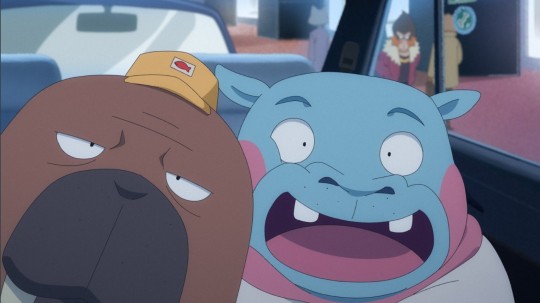
ODDTAXI
Quick Summary: A mild mannered middle-aged walrus taxi driver is drawn into a case involving a missing girl, yakuza, Youtube clout-chasers, manzai comedians and idols with big secrets.
It’s rare to walk away from media and be like “that is a singular experience I will definitely never see repeated again” but ODDTAXI is definitely one of those. A tense noir thriller murder mystery starring cartoon animals that spends an entire episode detailing the one (cat)man’s very fall into darkness triggered by addiction to gacha games and an online auction for a novelty eraser? Also there’s a porcupine Yakuza who speaks entirely in rap? Also there’s tons of meandering conversations about stuff like manzai comedy and the struggle to go viral on Twitter?
Admittedly, I had a hard time getting into the first episode, the dry meandering humor not being enough to hold my attention while I was sitting still, but once I watched this while I was working out at the end of the season, I found it an easy binge. A ton of characters with dark secrets or dangerous ambitions, each with their own part to play in a tableau of intersecting events- and it all actually comes together really well.(As for the female characters, it’s a pretty dude driven story, but they do get nuanced characterization and even some good heroic moments from one of them.)
It’s a great example of a carefully planned narrative paying off, with all the twists appropriately seeded and foreshadowed to reward viewers who paid attention. Even when it ended on a perfect “OH SHIT” moment and denied me closure, I couldn’t help but respect it. If you that all sounds interesting to you, definitely check out the first couple episodes and see if you like it- you’re likely to have a memorable, satisfying experience!
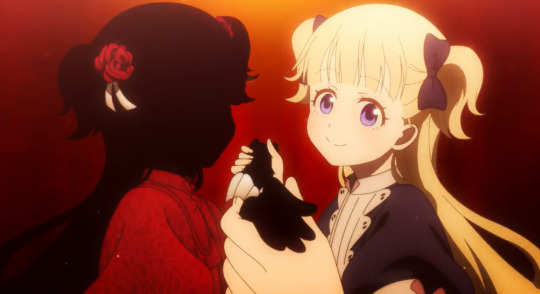
Shadows House
Quick Summary: Emilyko is a ‘living doll’ who’s told she was created to act as the ‘face’ of her shadow master, Kate. The shadows and their ‘dolls’ all reside on the mansion and are required to pass a ‘debut’ to prove they’re a good pairing. If they don’t pass, they might be disposed of. And so the mystery of the Shadow mansion grows...
This slice of gothic intrigue was my favorite of the season, tied with ODDTAXI. With an interesting premise, slightly tense undertones and a strong focus on character building and relationships, it kept me hooked the whole way through. And for any squeamish fans put off by the hype about it, don’t worry, while there are some suspenseful elements, I wouldn’t qualify it as horror. I thought the relationship between Kate and Emilyko might end up being a completely sinister one, but it’s thankfully a lot more complex than that and it’s really interesting to follow how both their characters and relationship grow. The focus of the show is, unsurprisingly, on the “dolls” slowly discovering their autonomy and personhood as they struggle under the rigid system imposed on them by the mysterious elders of this weird Victorian mansion. Can they develop a more equitable relationship with their shadow “masters” (who are also shown to suffer under this system)? There’s a lot to dig into there, and the show has the characters develop through learning to understand and appreciate each other, which is pretty heartwarming. Our hero, Emilyko, is the typical plucky ball of sunshine (they even nickname her sunshine), but she’s also shown to be clever in her own off-the-wall way and she bounces off the far more subdued and cynical Kate well, not to mention the other ‘dolls’ she ends up befriending.
What’s more, the show spends plenty of time to developing several other character pairings and combinations, and they all have their own interesting dynamic that makes you want to see more of them. Same-gender bonds are at the forefront of this show, and many of them are ripe for queer readings (I definitely appreciated the healthy helping of ladies carrying ladies), but even outside that it’s nice to see a show where a strong, complex bond between girls is at the forefront. My only real complaints about the show are the anime original ending is noticeably a bit rushed (though it’s not too bad, and leaves room for a season 2) and I wish the animation used the whole “shadow” theme more strikingly (like the opening and endings do)- instead the colors are a bit washed out which makes the shadows blend into the background sometimes. The “debut” arc also drags a bit in places, but it makes up for it by having a lot of good character integration.
I hope to check out the (full color)! manga soon and see more of this quirky, shadowy story. There’s some physical abuse depicted, sad things happening to characters and naturally the whole “oppressive familial system” thing, but otherwise not much I can think of to warn about. I give this one a big rec, especially If you’re a fan of gothic fairytales and stories of self discovery.
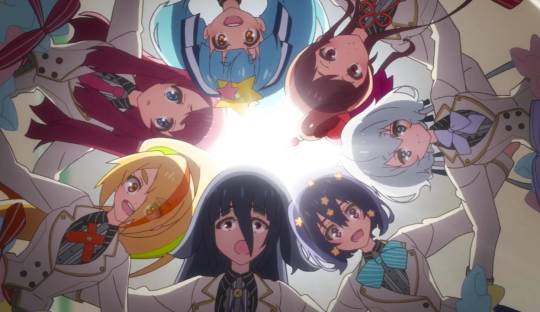
Zombie Land Saga Revenge
Quickest summary: In this sequel season, everyone’s favorite zombie idol group must claw their way back into prominence after a disastrous show- the fate of the Saga prefecture LITERALLY depends on it!
This was a fun follow-up to the first season- if you liked the first zombie-girl romp, you’ll probably enjoy this one. In fact, there were a couple areas it improved on- namely, Kotaro failed, ate crow and embarrassed himself a lot more this season, which made him more likeable (as did the fact the girls gained a lot of independence from him). This season also shed more light on what the ‘goal’ of this zombie raising project is and what kind of shit Kotaro got involved with to make this happen, and it’s appropriately off-the-wall and ridiculous. We finally got some backstory for Yugiri too! I wish it had focused on more of her interiority, but she got to be a badass in it, and it was a treat to see this zombie idol show turn into a period piece for a couple episodes (also her song ruled).
Tae also got a cute focus episode and there was a particular SMASHING performance early on! Also That revelation last season that had the potential to turn creepy hasn’t yet, and hopefully never will. The finale was heartwarming with big hints of more drama to come- I’m definitely down for more zombie hijinks!
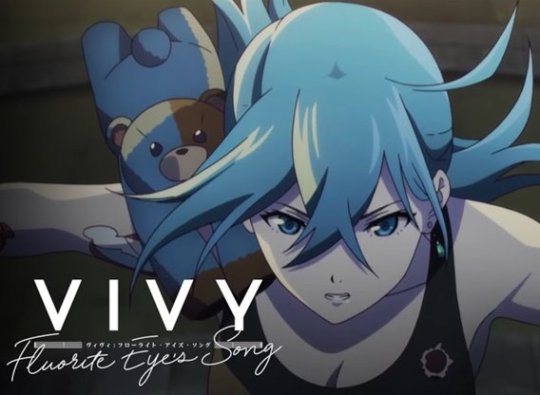
Vivy: Flourite Eye’s Song
Quickest Summary: A songstress AI named DIVA (nicknamed Vivy) is approached by another AI named Matsumoto, who says he’s from the future and they must work together to prevent AI exterminating all of humankind 100 years from now.
This show is absolutely gorgeous visually with some really nice action scenes, but when it comes to the story my feelings basically amount to a shrug. It’s fine! I guess! Vivy starts out as an interesting layered character- and I guess still is by the end- with her stoic but stubborn determination bouncing off her fast-talking bossy partner Matsumoto well. She never listens to him, which is delightful. The way the show took place over the course of 100 years was an interesting conceit as well. However, it bought up a lot of themes and then sort of... dropped them. For instance, Vivy interprets her mission (PRIME DIRECTIVE if you will) as protecting humans at all costs, no matter how destructive said humans are or what their fate is supposed to be, and is perfectly willing to murder her fellow androids to do this, showing she inherently thinks of androids (herself and her own people!) as less worthy. Which is a little alarming! There’s a very dramatic point in the show where they bring this up as a potential conflict for her character but then it’s sort of...dropped. Pretty much.
Actually, despite the premise, the show doesn’t dip into the “AI rights” as much as you think it would with the main theme being more about Vivy’s search to find her own creativity and discover what it means to ‘pour your heart into something’. Vivy herself doesn’t actually care if she has rights or anything. Which is in some ways fine, because ‘AI as an oppressed class’ has been done to death, but IT’S ALSO KIND OF IN THE PREMISE, so that means that the show just shrugs really hard at a lot of the questions it brings up basically just going “humans and AI should work together probably” and that’s it. There’s a lot that feels underexplored. The antagonists in the show also either have motivations that don’t really make sense or have boring hackneyed motivations. In the finale in particular, it feels like a lot of things happen “just because” and it falls a little flat.
I also have to warn that one of the arcs focus on a robot ‘pairing’ where the dude-coded robots actions toward his partner are straight up awful and rob her of her autonomy, but it’s played like a tragic love story. I suppose you could read it differently too, but it definitely made me go ‘ew’ the story seemed to want me to sympathize with this robo dude,
Overall, I wouldn’t anti-recommend this show, it’s an all right little sci-fic romp (and definitely SUPER pretty). My favorite element was definitely the episodes where Vivy develops an entirely new (an loveable) personality, because it played with the idea of of an AI getting “rebooted” really well and interplay between her two “selves” was done really well. But there are a lot of other parts of the show that just feel...a little underexplored and empty, making me have an ‘eh’ feeling on the show overall. It’s definitely an ambitious project, and while it didn’t quite stick the landing, there’s something to be said for a show that shoots for the stars and falls short over a show that just languishes in mediocrity.
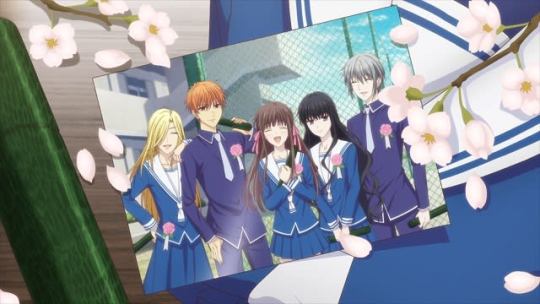
Fruits Basket The Final
Quick summary: The final season of that dramatic drama about that weird family with a zodiac curse and the girl who loves them.
It’s very weird that after not cutting a lot out, they kinda sped through some material for, you know, the finale. I guess they thought they couldn’t stretch this final arc to 26 episodes? Or weren’t cleared for another double cour? However, though there were a couple places that felt awkward, despite being a bit condensed it mostly held together pretty well for a D R A M A T I C and ultimately heartwarming conclusion. I was really disappointed they kept the part where Ritsu cut their hair for the ‘happy ending’, I thought their intro episode not showing them in men’s clothes meant the anime had decided their presentation didn’t need to be “fixed” but WELL I GUESS NOT. That was the only big upset for me though, otherwise the adaptation went about how I expected, sticking to the source material. Furuba has a lot of bumps, from weird age gap stuff to ...gender, but it also has a lot of important feels and great character arcs. It was a gateway shoujo for many and has its important place in animanga history, so I’m glad it finally got a shiny, full adaptation.
#anime overview#spring 2021 anime#shadows house#oddtaxi#zombie land saga#fruits basket#vivy: fluorite eye's song#zombie land saga revenge#fruits basket the final#anime#my reviews#long post
68 notes
·
View notes
Note
I Was wondering if you could talk more about the conflict in Syren please?
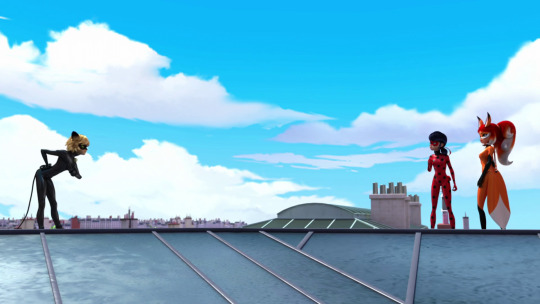
The most important thing about the conflict in 'Syren' is this: it's not actually about the relationship between Ladybug and Cat Noir, it's about the relationship (or lack thereof) between Master Fu and Cat Noir. But, because Master Fu was still using Marinette as the go-between between himself and Adrien, Marinette ended up being the target of Adrien's ire towards Fu. The divide between Cat Noir and Ladybug in 'Syren' isn't caused by either of their character flaws or a misunderstanding: it's caused by Fu.
A very easy to miss detail in 'Syren' is that Adrien didn't know that all their rules weren't coming from the Kwamis or Ladybug. When Ladybug tells him that she'll "talk to him about it", the existence of a "him" comes as a surprise to Adrien. At the start of the episode, Adrien being upset at his partner keeping things from him of seemingly her own accord was 100% justified. Even if he's more annoyed at her than he should be considering someone else is literally telling her not to tell him anything, Fu was creating a link between himself and Ladybug in Adrien's eyes. It's like when your region manager comes up with a new crappy policy but your local manager is the one who delivers the news so you end up upset with them instead. Fu was the one who demanded secrecy, but made Ladybug tell Cat Noir about it. Fu even further put Marinette in the role of a bearer of bad news by not really addressing her concerns over Cat Noir's growin frustration, only giving her some vague metaphor that meant she had to come up with some way to soothe her partner herself. He didn't give her a reason.
Adrien was being asked to put to up with a lot. He has to put his life on the line to protect Paris, he has to keep all these secrets and he has to make himself available whenever there's an Akuma. But nowhere is there a written rulebook that says he has to be happy about it. Ladybug calls them partners because, to her, they are. They carry the same burdens and responsibilities. However, they are not equal. Only Ladybug gets to know who the part-time heroes are, only Ladybug gets to know how the part-time heroes get their powers. Whenever they need a part-time hero, Ladybug abandons him in the middle of the fight to go get backup, a process which's details are unknown to Adrien. If Ladybug can just go and fish up a partner whenever, why does she need Adrien? If Cat Noir isn't treated any different from a part-time hero, who never get to know any of the details of anything, what's the point of him being one of the only two full-time heroes? If only Ladybug is necessary in the process of saving the day, what is Cat Noir even for?
A very important aspect of the scene where Adrien almost gives up his powers is this: Adrien has no idea what kind of help Ladybug will bring. All he knows that his powers are useless against Syren. All he knows is that, once again, his help, which used to be all Ladybug needed, wasn't enough so Ladybug had to go get someone else. And he wasn't being told why he wasn't being told anything. Maybe it was because Ladybug needed someone better to help her and they were just screening potential candidates. Maybe Adrien was making things easy by removing an unnecessary piece from the proceedings. Because, if he was being treated as equally expendable as a part-time hero, that meant he would be easy to replace, right?
When Adrien gets the powerup and helps Ladybug defeat Syren, he tells her "Thank you for keeping your promise, My Lady." This is an interesting line because it tells us that, after meeting Fu for mere moments, he already had him figured out from context clues. He knows Fu approaching him was thanks to Ladybug and that taught him that, even if Master Fu doesn't consider him as important as Ladybug, Ladybug does. And that's enough for him.
I'm fully convinced that Fu telling Marinette: "there's a right time for everything," was nothing but a dodge. I have a feeling he's been warding her off with that for a while, considering she says something similar to Cat Noir in the scene before Fu says it. We learned from Fu's relationship with Marianne that, for Fu, waiting for the right time can literally mean decades. This is why this episode, in the grand scheme of things, isn't about the Ladynoir relationship even if it does give some nice fodder for it; it's about Fu.
The thing about the way Fu's character is presented in the show is that something about him gets introduced in a throwaway or innocuous manner, only for it to end up being really important later. Fu mentioning his past mistakes came back to literally haunt the main characters in 'Feast' and even Fu's reaction to the monster was foreshadowed by 'Sandboy', where the seemingly silly bedsheet ghosts cried out his guilt in the demise of the Order of the Guardians, and Fu responds by fleeing.
Fu has been running his whole life. He was taken away from his family by this mysterious order who never taught him anything properly, and who then all died in a cataclysmic event caused by Fu's mistake. Fu lost the book with the Guardians' secrets almost immediately after. With the huge responsibility of the Miraculous on his shoulders and no knowledge to go on if anything went wrong, Fu had little choice but to hide the best he could and hope for the best.
We see in the opening scene in 'Backwarder' that Fu being willing to let anyone use a Miraculous is a new attitude, one most likely fostered by his closer association with Wayzz. Wayzz generally seems to be the one between them with the better head on his shoulders, which is the opposite of the Marinette+Tikki and Adrien+Plagg partnerships, where Tikki can often cause Marinette's catastrophizing to spiral while Plagg's advice to pretty much anything is "be happy, do crimes". However, Wayzz is very put together and wise, which is most likely why Fu chose him as his companion.
Still, considering how Fu was perfectly content with playing his role as an anonymous benefactor to our heroes, he still wasn't ready to be a mentor. He only started telling Marinette things because circustances brought Marinette to hunt him down and the Lucky Charm literally started telling her to seek out Fu every once in a while. But, considering how Fu's go-to response to a problem is still "run away" by the time 'Feast' rolls around, he didn't do Cat Noir the same courtesy. Ladybug he had to stay connected to because she'd need to come pick up a Miraculous from him every once in a while, but Fu preferred to live in a way where he was ready to pack up and disappear in a moment's notice and that would be easier if he had fewer personal connections to miss.
The thing about Fu is that he's low-key going through a character arc behind the scenes of the narrative. 'Syren' is the first time Fu gets character development in the show's current timeline. And the lesson for Fu in 'Syren' was: sometimes change happens, and you'll need to make the best of it. Fu only gained the solution to the recipe because Marinette helped him, because someone else was in on the secrets. So Fu revealed himself to Adrien. We still don't know how much Fu told Adrien but, considering how little Adrien was ready to listen to him in 'Party Crasher' and how he looked like a sympathetic outsider in the scene where he and Marinette were saying goodbye in 'Miracle Queen', they definitely didn't meet up as often as Marinette and Fu did.
Still, 'Feast' is when Fu basically completes his character arc, deciding to trust Marinette with his life's work by naming her his successor once it's time for him to retire. I'll note that he never properly discussed this matter with Marinette, because of course Fu's not gonna learn anything from his own experience as being given a huge responsibility as a child just like he didn't learn anything from being left alone and without answers as a child since he didn't approach Adrien because he recongized his own situation, he did it because the situation forced him to do so. Fu has a character arc in the show, but I'm not sure it went into a good direction considering the other characters.
One final thing about Fu's character arc is that he never truly overcame the urge to run that had been his creed for almost his entire life so far. We see in 'Miracle Queen' that he'd prepped a full "in case of my demise/disappearance" package for Marinette. Fu had probably been counting the days he'd vanish since 'Feast', when he left his massage shop behind.
#miraculous ladybug#miraculous tales of ladybug and chat noir#ml meta#syren#long post#it's dunking on fu hours#popular
206 notes
·
View notes
Note
Please elaborate on how Five could've turned into the most insufferable character to watch
Thanks for asking me to elaborate on this text post:

@tessapercygranger, @waywardd1 and @margarita-umbrella also wanted to see a more detailed version of it, and I ended up writing an essay that’s longer than some of my actual academic essays. So buckle up.
WHY NUMBER FIVE SHOULD BE THE MOST OBNOXIOUS CHARACTER IN TV HISTORY, AND HOW HE MANAGES NOT TO BE
Number Five: The Concept That Could Go Horribly Wrong
Alright, let’s first look at Five in theory in an overarching way, without taking into account the execution of the show. The basic set-up of the character, of course, is being a 58-year-old consciousness in a teenager’s body, due to a miscalculation in time travel. Right off the bat, Five is bar none the most overpowered of the siblings; by the end of Season 2, no one has yet been able to defeat him in a fight. He is a master assassin – and not just any master assassin, but the best one there is – and a survival expert, able to do complex maths and physics without the aid of a calculator, shown to have knowledge of half a dozen languages, has very developed observational skills and, to top that all off, he can manipulate time and space to the point where he can literally erase events that happened and change the course of history. And Five knows how skilled he is; he is arrogant, self-assured and sarcastic, and his streak of goodness is buried deep inside. David Castañeda once described Five in an interview as 90% chocolate with a cherry in the middle, meaning that you have to get through a lot of darkness and bitterness before knowing there is a good core, and I think it’s an excellent metaphor. However, Five is also incredibly, fundamentally terrible at communicating with anyone, and, because he is the only one with time travel abilities, the character a lot of the actual plot - and the moving forward of it - centres around. Also he’s earnestly in love with a mannequin, who is pretty much a projection of his own consciousness that functions as a coping mechanism for all the trauma he has endured. All in all, this gives you a character who looks like a teenager, but with the smug superiority of a fifty-something, who a) is extremely skilled in many different things, b) has a superiority complex, is arrogant and vocal about it, and most of the superiority is expressed through cutting sarcasm, c) has one very hidden ounce of goodness that he is literally the worst at communicating to other human beings, d) is what moves the plot along but is also bad at talking to anyone else, meaning that the plot largely remains with him, and e) his love interest is essentially a projection of himself. Tell me that’s not a character who is destined to be just…obnoxious, annoying, egocentric, a necessary evil that one has to put up with to get through this show. There are so many elements of this characterisation that can and should easily make Five beyond insufferable, but the show manages to avoid it, and I’m putting this down to three aspects.
That Trick of Age and Appearance
Bluntly put, Five as a character would not work if he was anything else than an old man in a 13-year-old body. Imagine this character and all his skills and knowledge, but actually just…a teenager. Immediately insufferable. Same goes for him being around 30, like his siblings, all of which are stunted and traumatised by their father’s abuse. If Five, being comparatively unscathed by Reginald to the point where he explicitly does not want to be defined by his association with his father, were 30 like his siblings, it would just take the bite out of that plot point and also give him a lot less time in the apocalypse, reducing the impact it had on him as a person. And making Five his actual 58-year-old self would make him very similar to Reginald, at least on surface level, with the appearance and attitude. Five and Reginald are two fundamentally different people, but having one of the siblings being a senior citizen that’s dressed to the nines and bosses his siblings around in a relatively self-centred way does open up that parallel, and would take away from Five’s charm as a character. Because pairing the life experience of a 58-year-old with the appearance of a teenager gives you the best of both worlds. You get the other siblings (and a lot of the audience, from a glance in the tags of my gifsets) feeling protective and paternal about Five, but his age and experience also give the justifications for his many skills, his arrogance, in a way, and his ability to decimate a room full of people. It’s the very interesting and not new concept of someone dangerous with the appearance of something harmless, a child. This is also where Five’s singular outfit comes in. I know we like to clown on Five to get a new outfit, but I think what gets forgotten often is how effective this outfit is at making the viewer take him seriously. The preppy school uniform is the perfect encapsulation of the tension between old man in spirit and young teenager in appearance. The blazer, vest and especially the shirt and tie are quite formal, relatively grown up. They’re not something we, the audience, usually associate with a teenage boy wearing; it makes Five just a little bit more grown up. But there is also a reason characters in this show keep bringing up Five’s shorts and his socks, because those are not things that we associate with grown men wearing; they’re the unmistakably childish part of his school uniform. Take a moment and imagine Five wearing a hoodie or a t-shirt, jeans, and sneakers; would that outfit work for him as well as the uniform does? Would he be able to command the same kind of respect or seriousness as a character? I don’t think so; the outfit is a lot more pivotal in making Five believable than a lot of people give it credit for.
Writing Nuance
The other big building block in not making Five incredibly insufferable is the writing. Objectively speaking, I think Five is the most well-written, and, more importantly, most coherently written character on the show (which does have to do with the fact that the show’s events are all sequential for him), and his arc and personality remain relatively intact over the course of the two seasons. More to the point, a giant part of what makes Five bearable as a character is that he is allowed to fail. He is written to have high highs and low lows, big victories through his skills and his intelligence, but also catastrophic failures and the freedom to be wrong. His superior intellect and skillset are not the be-all end-all of the plot or his character, just something that influences both. His inability for communication has not (yet) been used to fabricate a contrived misunderstanding that derails the plot and left all of us seething; instead, it’s a characteristic that makes him fail to reconnect with the people he loves. This is a bit simplified, as he does find common ground with Luther, for example, but in general, a lot of the rift between Five and his siblings is that they can’t relate to his traumas and he does not understand the depth of Reginald’s abuse, which is an interesting conflict worth exploring. Another thing that really works in Five’s favour is that he is definitely written to be mean and sarcastic, but it is never driven to the point of complete unlikability, and a lot of the time, the context makes it understandable why he reacts the way he does. Most of the sarcastic lines he gets are actually funny, that certainly helps, but in general, Five is a good example of a bearable character whose default personality is sharp and relatively cold, because it is balanced out with many moments of vulnerability. Delores is incredibly important for this in the first season, she is the main focus of Five’s humanising moments, and well-written as she totes the line between clearly being a coping mechanism for an extremely traumatised man and still coming across to the viewer as the human contact Five needs her to be. In the second season, the vulnerability is about his guilt for his siblings, it’s about Five connecting a little bit better to them. There’s also his relationship with the Commission and the Handler specifically – which honestly could be an essay on its own – that deserves a mention, because the Handler is why Five became the man he is, and this dynamic between creator and creation is explored in a very interesting way – their scenes are some of the most well-written in the entire show. And TUA never falls into the trap of making Five a hero, he is always morally ambiguous at best, and it just makes for an interesting, multi-faceted character, well-written character, and none of the characteristics that should make him unlikeable are allowed to take centre-stage for long enough to be defining on their own. I know a lot of people especially champion the scenes where Five goes apeshit, but without his more nuanced characterisation, if he was like that all the time, those scenes would not hit as hard.
Aidan Gallagher’s Performance is Underrated
But honestly, none of the above would matter that much if the Umbrella Academy didn’t luck out hard with the casting of Aidan Gallagher. I think what he achieves as an actor in this show is genuinely underappreciated. Like, the first season set out to cast six adults having to deal with various ramifications of childhood trauma, and a literal child that had to be able to act smart and wise beyond his years, seamlessly integrate into a family of adults while seeming like an adult, traumatised by the literal end of the world, AND had to be able to create the romantic chemistry of a thirty-year-long marriage with a lifeless department store doll. The only role I could think of to compare is Kirsten Dunst in Interview with a Vampire, where she plays a vampire child who, because she is undead, doesn’t age physically, but does mentally, so she’s 400 in a child’s body. And Kirsten Dunst had to do that for a two-hour movie. Five is a main character in a show that spans 20 episodes now. That’s insane, and it’s a risk. Five is a character that can’t be allowed to go wrong; if you don’t buy Five as a character, the entire first season loses believability. And they found someone who could do that not only convincingly, but also likeably. As I said, he is incredibly helped by the costuming department and the script, but Aidan Gallager’s Five has so much personality, he’s threatening and funny and charming and arrogant and heartbreaking. He has the range to be convincing in the quiet moments where Five’s humanity comes to show and in the moments where Five goes completely off the rails. Most child actors act with other children, but he is the only child in the main cast, and holds his own in scenes with adults not as a child, but as an adult on equal footing with the other adult characters. That’s not something to be taken for granted. But even apart from the fact that it’s a child actor who carries a lot of the plot and the drama of a series for adults, Aidan Gallagher’s portrayal of Five is also just so much fun. The comedic timing is on point, he has the dramatic chops for the serious scenes, the mannerisms and visual ticks add to the character rather than distract from him, and his line deliveries, paired with his physical acting, make Five arrogant and smug but never outright malicious and unlikeable. It’s just some terrific acting that really does justice to the character as he is written, but the writing would not be as strong if it wasn’t delivered and acted out the way Aidan Gallagher does. He is an incredible asset for this show.
Alright, onto concluding this rambling. If you made it this far, I commend you, and thank you for it. The point of all of this is that Five, as a character, could have been an unmitigated disaster of a TV character. He is overpowered, arrogant, uncommunicative and could so easily have been either unconvincing or completely unlikeable, but he turned out to be neither. It’s a combination of choices in the costume department, decisions in the writing room, and Aidan Gallagher’s acting skills that make the things that should make him obnoxious and annoying incredibly entertaining, and I hope you liked my long-winded exploration of these. Some nuance was lost along the way, but if I had not stopped myself, this would’ve become a full-blown thesis.
#thanks for the ask again#TUA#The Umbrella Academy#Five Hargreeves#tua s2 spoilers#my meta#i guess#Replies#Anonymous
909 notes
·
View notes
Note
hi hi!!! i love your vil analysis post!! just wondering though...why does vil force epel to do traditionally “cute, feminine” things. i get that it’s, like, to counter neige for the vdc, but it kind of goes against vil’s ideology? like, how i see it, vil advocates for people to express themselves how they want without being bound by gender roles. i feel like if epel tried forcing his manliness ideology onto other people, he’d be justified in his “forcing epel to do cute things” plan, but i don’t think epel has ever shamed feminine guys? he just wants to be manly himself. could this be an allusion to how the evil queen turned ugly just to fulfill her goals? vil going against his core ideals and becoming “ugly” just to win?
Glad you enjoyed it dear! As for your question, I believe that'll be better if I go into details because I've seen many asking similar questions regarding chapter 5, and I guess that's causing some misunderstandings towards both Vil and Epel. Well, we're soon getting the rest of the Pomefiore Chapter, so I guess it's the best time for an analysis on Epel and Vil's relationship and how Chapter 5 has been going so far

First off, let me state something really really important about the Pomefiore chapter, this arc has got pretty wild spirits that are quite new compared to the previous chapters. We've got Neige, the first RSA character to appear as a real rival of a NRC student, Vil and Epel's rough relationship, Ace and Deuce joining MC on the new adventure once again and finally, the VDC: an event with is potentially important to not only the whole NRC but also Twisted Wonderland!
While all fans are surely excited to see what we'll be going through next, there are quite a few of misunderstandings and wrong interpretations that are considerably important regarding the Pomefiore chapter. In order to avoid possible dramas and more misinterpretions between the fans, let's try to take a better look at this Chapter and important Pomefiore hints that we've got so far:
(1)Epel's feelings; the most important element of chapter 5
One of the quite brilliant facts about Chapter 5, is the unique presence of characters and their roles in the story. This might seem quite unrecognizable, but right now Epel's appearance is effecting the audience way more than Vil's! This arc is mainly focusing on making the audience feel his pain and hard time, and I can say that they're doing it pretty well! We'll talk about how his feelings are being presented in part (6). Now, you may wonder why his feelings are so important in the Pomefiore arc? Isn't it supposed to be mostly about Vil? Well of course, the story is most likely leading us to Vil's overblot so he's the heart of this chapter, but the important thing is too see how crucial Epel's role is here. Watching how Epel is in pain, silenty crying and forced into doing something that he doesn't want to by Vil is savagely effecting this fandom's interpretation of Vil, some are commenting on how he's the worst or how horrible he is or hundreds of not really friendly critiques which is awfully frustrating... We'd continue to talk about this point in part (5)!
(2) Epel's relationship with Vil
Let's review what we've got through the side stories. To begin with, Epel obviously doesn't really like Vil, (I'm trying to cooperate and not say that he hates him) he didn't appreciate having him as the dorm leader from the very beginning. But he's got some strong reasons to dislike Vil so we can't really blame him:
1)Vil slapped him all of a sudden just because of his poor posture at the dinner table 2)Vil almost crashed Epels head between his hands while teaching him some manners 3)Vil's idealistic are just the opposite of Epel's 4)Vil is trying to change Epel, especially during chaptet 5. It sometimes feels like Vil is treating Epel like his puppet and Epel doesn't appreciate this all.
At the end of his SR lab story Epel stated how he's going to study his hardest in magic and potions, so maybe at some point he'd beat Vil, which goes to prove that he considers Vil a rival.
"Why is it so though? Isn't this pretty risky for Epel to challenge Vil, especially as Vil is a dorm leader and Epel's just a first year who's still an amateur at magic?"
Farewell, let me mention something about Epel, he's got a really strong will to the point of not giving up until proving everyone wrong. He's often looked down on, is called to be useless and dumb, and is sometimes insulted for being innocent and naïve. True, he still has a lot he needs to learn and he's aware, but he won't take being underestimated easily.
Just look at him! He's been raised in a farm and he still found his way to this school filled with stunning students coming from noble families while Epel is a simple country boy! He proved the point to us once again in his lab coat story where Crewel gave him an impossible task just to push him into giving up and coming to apologize afterwards. When Epel realized that he was just tricked by Crewel, he felt quite frustrated and started to cry, yet he didn't give up and used his personal experiments and what he'd learned back in his farm life and paved his road to success and impressing everyone including Crewel!
This is why he isn't backing up now, he doesn't want and isn't going to lose to Vil. Another important reason might be how Vil seems to have control over Epel, his manners, his attitude, the way he looks and basically, the person Epel is. Epel has indirectly said that Vil may be currently bounding his actions and life, but someday this will change. He mentioned similar lines several times and you can see he really has a strong will to prove everyone, especially Vil, that he's not a cute apple boy to sit still and look pretty. And if he's been waiting for the right time to stand against Vil, chapter 5 has got it. In part (7) you'll see why.
(3)What is happening in chapter 5?
Okay before we continue, let's just focus on what we've got in Pomefiore chapter: This year's vocal and dance championship has an unbelievable amount of media focused on it , because two of the world-famous influencers,Vil Schoenheit & Neige Leblanche, are joining. Both are great influencers and talented designers, but recently Neige has been getting really popular through the social media and TV, thus Vil realizes that the time to face his well-known rival, Neige, has come.
The VDC is no joke to him because hundreds of people are coming to watch this competition between two Celebrities, and his career is surely at risk. If the VDC doesn't go as well as he's planned, that'll be an end to his fame and clout, possibly his whole career! Therefore he has to make sure that nothing is going to ruin his plans for the big day, and that's why he is going to use his ultimate weapon, the red poisoned apple. Note that this isn't just about Vil, it's about protecting NRC's clout against RSA as well, so losing the VDC would seriously effect NRC's picture throughout the whole twisted wonderland. So a really important part of NRC's future is relying on Vil's hands right now.
Look, unlike the previous chapters, Vil's story is about nothing fictional or exaggerated; it's something that's pretty normal to see in real life! Two famous fashion designers joining a competition, both are giving in their best, aren't planning to lose, are going to be awfully strict towards training their models and making sure that nothing would be messed up, and are SERIOUS about winning because losing it to the other side would end in losing their clout and having the reports of their unfortunate fall-down spread worldwide.
Unlike the previous overblots, Vil's strictness and seriousness has NOTHING to do with being evil or crazy, he's just doing what he's supposed to be doing, working his hardest to defend his career. Anyone else who were in Vil's shoes would've done the same, and nothing about it chaotic, heartless or mad. His being pretty strict towards Epel because he's his main hope, Epel is the perfect beauty material and is definitely capable of achieving all the best through the VDC, that's why Vil's counting on him. Just as a fashion designer is strict with training their model, Vil is all serious with his way of couching Epel. And it's just about being professional, not being evil!
(4) It's not about Vil, it's about Epel
This is more of a continuation to part (3), but let's talk seriously about how wrong chapter 5 is being interpreted. "Vil is the worst! Can't he see that Epel doesn't want this?" or "Ew gross! People like Vil who use others for their very own benefits are just horrible" are some of the aggressive comments I've recently heard about how Vil is doing in Chapter 5, which is mainly because of Epel. I mentioned that Epel's feelings are most important element of chapter 5 and this is why!! Vil isn't doing anything that savage or mean but his actions seem to be a lot more appealing to fans due to how Epel's frustration and pain is being focused on. It's not because of Vil, it's because of Epel. Vil had been just the same with Leona back in the fairy gala event and most of the fans considered the story to be much of a comedy, but when Vil's treating Epel just the same way it sounds mean, cruel, harsh and heartless. See what I meant? Epel's presence was crucial to give Vil an evil perspective and make him seem just as bad as Azul or Leona.
I'm not defending his action since Epel as well is surely under a serious pressure. He doesn't even want to be joining the VDC, let alone having to follow all these strict rules that Vil's been teaching him so far. But since Epel forcedly made the deal with Vil and promised to help him for the VDC, there's no turning back now. Vil is counting on him as his very last hope and is putting his hardest of work and effort into training Epel, just like any professional fashion designer would've done.
(5)Vil is NOT the Evil Queen!
As for Vil's biggest difference with the Evil Queen, I must say that Vil does really work his hardest for what he desires. Evil Queen simply wanted Snow White dead while we've got Vil, working his ass off preparing everything for the VDC. He isn't just going to get mad and envies of Neige because his becoming popular, he doesn't want Neige dead either. All Vil has been doing so far was working and working and working and getting to be called cruel and heartless in return, I mean can't you just feel the amount of effort and nerve he's giving into work?
See, a considerable majority of the fandom is exaggerating the story of chapter 5 while Vil hasn't even shown a simple sign of having any ill intentions or evil plans in mind! We don't know what is going to happen i the next episodes but let's say that he hasn't done a single evil thing so far.
Just take a look at previous chapters! Leona was openly planning to unfairly harm and injure other students and Azul fooled nearly 200 students, took away their magic and forced them to work for him in Mostrolounge until they graduate from the very beginning. Heartslabyul and Scarabia weren't as severe as these two but they still did have some sort of a visibly unhealthy aura. Vil's current impression as the villain of chapter 5 is high-kay normal and chill compared to the previous chapters as he literally has done nothing evil so far, NOTHING. Most of the fandom is currently giving him the malicious aura that he doesn't have, or at least he doesn't yet have. Look, Vil's just doing his job. This doesn't even have anything to do with the Evil Queen! Also, Vil's rival ship with Neige has nothing to do with beauty, it's about fame, net-worth and popularity.
We don't know if he'd come up with any ill plans or serious intentions to harm Neige or anyone else in the new episodes, but his current impression in nothing more than going hard on Epel as his coach which is just being overly exaggerated by the fandom. A real life fashion designer would've done JUST the same thing! I know that this story is most likely going to end in Vil's overblot and him revealing his inner villain but come on, he hasn't done anything horrible so far!
(6)How Epel is being presented through Chapter 5
This point is the cause of many misunderstandings and confusions regarding Chapter 5, many find the context of Epel being forced to do what he doesn't like so cruel, some on the other hand are confused becaused Vil has clearly stated that his terms of beauty are gender neutral, so why would he force Epel to do these in the first place? As I said before, it's because of Epel, not Vil.
When it comes to perspectives on beauty, Epel's idealistics are just the opposite of Vil's. Look, Epel hates being mistaken with a girl or being considered soft and cute, this is something that has been bothering him for quite a long time. Being misgendered because of his appearance all over his life has had some negative effects on his perspective toward anything cute or feminine, as it just reminds him as how he often gets misunderstood because of his unwanted appearance and cuteness. Epel is awfully similar to Deuce and wants nothing more than getting to reveal the manliness he's holding within, through not only tastes but also abilities.
This is why he's been feeling quite uncomfortable in chapter 5 because Vil's basically pushing him into doing what he hates the most, looking cute and, well, something that Epel would consider feminine. The thing is, Vil does not consider stuff like 'Being able to sing beautifully, performing eye-catching movements voice, wearing stunning clothes and applying makeup' feminine at all, to Vil these are gender neutral terms of beauty and he doesn't get why Epel might consider them girlish or feminine either. Epel's comment on not wanting to do girlish things sounded naïve and low key rude to Vil because beauty isn't bound to being male or female, and he doesn't appreciate the idea of these works being called girlish at all.
This is neither Epel nor Vil's fault, it's just the difference in idealistics.
(7) Vil's on thin ice right now
Let me tell you a secret, 'choosing Epel to become the red poisoned apple wasn't an accidental act AT ALL'. Vil has been watching over Epel ever since he entered NRC and this is why he was so strict about changing this "Mudded potato" into a well-behaved Pomefiore student. Vil knew Epel's name and had discussed his case with Rook right at Epel's first day, and this is why he treated Epel so harshly at the dinner table because his plan to turn Epel into his red poisoned apple had already begun. He was preparing Epel from the very beginning and was just expecting the big day to arrive, the day he'd need Epel to defeat his rival, Neige.
Remember that I said how Epel's been waiting for a chance to stand against Vil and how Chapter 5 would be his BEST opportunity to do this? Before we explain this point, let's have a review on how Vil has been effecting and changing him so far. During his first days in NRC, Epel was more comfortable with shouting, fighting and opposing to other students including Vil. He used to disagree until Vil slapped him but now in Chapter 5, he doesn't even say a word when Vil tells him to do something, he just silently obeys as tears fall from his eyes. He no longer fights back as much as he used to.
But right now, Vil's career, status and future is bound to Epel. Vil has been working harder than ever trying to turn him into the Red poisoned Apple he's been expecting him to become, and if Epel backs up or decides to ruin the show and stop letting Vil have control over him, that'll seriously make Vil explode. And if you think that Vil deserves to be hurt like this, I gotta say that he doesn't, he seriously doesn't deserve this after all he's been going through. Just imagine being on Gil's shoes, how would you feel about having the result of all that hard work and effort you've given into work for YEARS ruined like this? Look, we need to judge this situation nonetheless, even is you don't really like Vil it's important to realize the unfairness of this possible future to the story.
Epel now has the opportunity to BREAK Vil like no one has ever done, after all Vil has been going through to coach Epel, teach him manners, change his nature and prepare him for the VDC this would certainly be the worst thing that may happen to him and it'll make him mad, like really really mad. The Vil we've seen through the story so far was nothing more than Vil's normal calm self so we can't even imagine how it might be to see him mad. At this point he won't be bound to any manners or consderations, and keep this in mind: "We won't like it when Vil is evil, and we can't imagine how evil he can be,"

I'm honestly so excited and terrified at the same time to see what we'll get to see in the rest of the Pomefiore chapter, the atmosphere is so nerve-wrecking right now and I can't help but to pray that the rest of this story doesn't traumatize us as much as it can- “Yana please, have mercy on us”
#Twst#twisted wonderland#Twst x reader#twisted Wonderland x reader#vil Schoenheit#Vil Schoenheit x reader#epel felmier#epel felmier x reader#rook hunt#Pomefiore#character analysis
387 notes
·
View notes
Text
Castlevania Season 4: I’m not mad, just disappointed
Season 4 is poorly written fanfiction, which is...better than a lot of things could be, I guess.
Spoilers below the cut.
Content warning: trauma, sexual assault, psychological manipulation
The Gods Have Had a Change of Heart
Or, “Season 3 Blocked and Ignored”
Season 3 felt like the fabric of the universe had been twisted just to inflict additional pain. Season 4 overcompensates in the other direction; trauma evaporates, and good things happen for no other reason than to make our favorite characters happy.
The Season 3 finale left two characters in particular totally devastated: Alucard and Hector. Alucard is violently betrayed in a horrifying sexual assault by the first two people he’s spoken to since Trevor and Sypha left. He ends up killing them in self-defense and puts their bodies on stakes outside the castle, alluding to his father’s habit of doing so and potentially hinting at a turn toward evil. Hector is seduced by Lenore and then enslaved using a magic ring.
Yet at the start of Season 4, it’s as if these things never happened. Alucard is troubled, but not totally devastated, certainly not evil. Taka and Sumi are referenced in exactly one conversation with new character, Greta, in which she says the rather tactless throwaway line, “I had a boyfriend and girlfriend at the same time once. But they never tried to kill me.” Hector is nominally imprisoned, but immediately seems highly agentic, perhaps even more so than before. He studies, lays traps, and makes secret plans with other people. Furthermore, his relationship with Lenore is completely transformed. From falling to his knees in abject horror and despair at being enslaved, he suddenly switches to light banter, in what is apparently a basically okay, mutually enjoyed romantic/sexual relationship. Manipulative, selfish Lenore is now a sympathetic character struggling to reconcile her own role and feelings with Carmilla’s plans.
The events of season 3 happened, remaining canon in the most basic, literal sense. But the emotional weight attached to them has disappeared into thin air.
Not gonna lie, I did breathe a sigh of relief when I saw that Alucard and Hector were okay. I’m soft-hearted! I don’t like seeing characters I like suffer! I mean, conflict is important, and I can deal with (or even enjoy in a certain sense) seeing characters suffer if it makes sense and serves a narrative purpose. But as far as I can tell, the season 3 finale was nothing more than lurid, meaningless violence. I probably wouldn’t have continued watching the show if it devolved into nothing more than finding novel ways to torture the characters.
Still, it doesn’t feel quite right to pretend like nothing happened either. Or, really, not that nothing happened, but that those things didn’t matter, didn’t hurt, didn’t leave lasting scars. That’s...almost kind of worse.
But, I thought, I can sort of forgive this sudden shift in the stars, given that there may have been some sort of change in creative direction relating to Ellis’ decreased involvement with the show.* Plus, season 3 was insanity. It’s not like it was full of great writing choices, so if we quietly ignore some of them, maybe that’s for the best.
*I only later learned that Netflix actually chose to continue with Ellis’ season 4 scripts. It is not lost on me that maybe Ellis doesn’t know how to write about the lasting effects of traumatic sexual experiences or how power dynamics can make a sexual relationship problematic because he doesn’t understand that those things exist.
Characters Being Nobody and Nothing Happening
Pretty Pictures, Not Much Else
Unfortunately, the disconnect between seasons 3 and 4 isn’t the only problem with this season. Although I felt that season 4 was a bit less boring than season 3 (I particularly enjoyed some of the earlier episodes of season 4), it suffers from the same basic problems of Characters Being Nobody and Nothing Happening.
None of the characters experience any significant development, let alone any sort of coherent arc. Sypha has changed slightly, becoming more rough and jaded. I did really like the scene where she talks about becoming the kind of person who says “shit.” I think it really speaks to how entering into a relationship with someone means taking on aspects of their lifestyle, and how that can change you in ways that you can’t predict and therefore can’t exactly “agree” to. Sometimes those changes are good, sometimes they’re bad, sometimes they’re neutral, and sometimes it’s difficult to know. But you have to accept that you’re sacrificing some aspects of the person that you could have been if you chose to live completely independently, or with someone else.
Trevor really hasn’t changed since season 1 when he first decided to take up the mantle of hero again. Likewise with Alucard. Hector and Lenore change, as previously noted, but that change is sudden, jarring, and occurs completely off screen in between seasons 3 and 4. Carmilla dies as exactly as she lived: bitter, angry, and violent. Saint Germain just kind of...gets fucked over in a nonsensical subplot, which is its own whole can of worms.
We also get several new characters in season 4, none of whom have developed personalities or motives, nor do they develop any of those things over the course of the season: Greta, Zamfir, Varney, Ratko.
And nobody. Does. Anything.
Trevor and Sypha spend the entire season trying to explore and aid Targoviste, which comes to absolutely nothing. They’re unable to help anyone, Zamfir dies, and they end up just jumping through a magic portal to the actually relevant subplot in the finale. Carmilla literally does little more than draw maps until she’s ultimately killed. Hector plays a minor role in Saint Germain’s extraction of Dracula from Hell; otherwise, he and Lenore basically just exchange banter. Saint Germain does sort of do some stuff? But it’s often unclear how he’s made his connections, who the people who are helping him are, or what exactly he’s doing in terms of his magic beyond “whatever it takes to get back to his lover.”
Sure, there are fight scenes, but they feel meaningless. There’s no context, no stakes. There’s also a LOT of dialogue, and it is. Not well written. Exposition is embarrassingly clumsy at times, and the philosophical musings are cliche at best, muddled and confusing at worst. There’s just not all that much going on.
That is, except for Isaac. But more on him in a second.
What Kind of Show Is This?
When the plot line adapted from Castlevania III: Dracula's Curse ended with season 2, the show struggled to establish a new identity.
Despite nominally dealing with themes like whether humanity is inherently good or evil and how to cope with wrongdoing and loss, seasons 1 and 2 ultimately boiled down to a pretty generic action-adventure/fantasy plot with found family/power of friendship elements. Main characters Trevor, Sypha, and Alucard don’t really wrestle with big philosophical questions or suffer any major defeats. They know that they have to take down Dracula for the good of the world, and they work together as a team to do it, with a little character development relating to their various backstories sprinkled in.
Then season 3 happened, and things got weird. The trio is broken up for what feels like a pretty trivial reason—Alucard has to protect the castle and Belmont hold, I guess? And the result of that decision is that the dynamics for the three main characters are completely unbalanced.
Ellis openly admits that he basically went feral with the writing of season 3, and it shows. The messaging in seasons 1 and 2 was cliche, but consistent. The message of season 3? Anyone’s guess.
Season 4 reversed the darkening of tone from season 3, but shares its inability to pick a story and tell it.
Isaac is the Main Character
Always has been.
While I can’t say that his character or arc are perfect, I can say that he actually has a character and an arc. He starts off motivated by his fierce loyalty to Dracula, then has to struggle to find his purpose once Dracula is gone. He goes from subservient to agentic. He goes from fully endorsing the genocide of humanity and not caring about his own life to seeing some worth in humans and genuinely wanting to live. He has an interesting moment that deepens our understanding of what night creatures are, while also serving as an exploration of the meaning of one’s fundamental nature. Most importantly, these changes happen naturally over the course of the show. They never feel forced or out of the blue, and while I feel like even more could have been done with Isaac’s character, there’s a lot to appreciate about what is there.
If there’s any thread holding Castlevania as a single, coherent work together, it’s Isaac. Not only is his character the best executed and the most coherent over the course of the show, his character explores themes that are larger than himself and relevant to the show as a whole, like those mentioned earlier: misanthropy versus a belief in the value of humanity; the ability to go beyond one’s “nature” or initial circumstances; and how to respond to being wronged or losing something important to you. Exploring the individual lives of characters is great, but really good writing usually requires going beyond that to reflect on broader questions and ideas. Isaac is the only character here that serves that larger purpose.
Sorry...I Just Don’t Buy It
The season 4 finale is crazy, although in a different way from season 3′s.
Varney being Death makes no sense on several different levels. I’m not going to spend a lot of time picking that particular plot twist apart, but I will talk about why I think it doesn’t work at the largest scale, and how I think season 4 might have been done better.
Last minute twists with zero foreshadowing are rarely a good idea, and this is no exception. Why introduce this “Death” entity at the last minute to be the most important battle of the season? The finale of the entire show, even? Besides the lack of logic or emotional buildup, this robs the show of the opportunity to make use of the antagonists that it already has. Since Dracula died, Carmilla has been the obvious choice for a new big bad. Why hasn’t she done more?
Season 4 feels crowded with characters and plot lines that amount to nothing. Why not bring some of these characters together? If Carmilla is the main antagonist, how come she never meets any of the protagonists (except Hector, who is a pretty minor player in this ecosystem) or even affects them in any way?
Season 4 feels like maybe it was trying to make something out of season 3 and the model that it presented, but it ultimately fails to do so. The writers throw the trio back together at the end anyway, so why not have them rejoin sooner and work together? Maybe Sypha and Trevor’s past experience with Saint Germain could have helped Alucard and Greta piece together what he was plotting sooner, rather than all four of them being completely blindsided by it in the penultimate episode. (Sypha and Trevor know that someone is trying to resurrect Dracula, but they fail to find out any actual detail about the plans, despite their supposed attempts.) Have characters actually do stuff, figure stuff out, advance the plot!
Likewise, maybe Carmilla becomes aware of Saint Germain’s scheming, sees it as a threat, and tries to take him down. Maybe she tries to get involved and somehow use alchemy or the Infinite Corridor to her own benefit. What does it look like when power-hungry Carmilla, who wants to rule the world, finds out there’s an entire multiverse out there? That could easily set her up to be a foil to Saint Germain, causing him to realize that what he’s doing is wrong.
What actually ended up happening in the show feels disjointed and often empty. In particular, most of the events that happen in the last two episodes just don’t really work for me. I didn’t like Trevor suddenly sacrificing himself to this random, new, super powerful enemy, or how the gems and dagger that he found just happened to be the perfect weapon to kill this new enemy, or how he inexplicably returns from the dead.
This kind of thing is what I mean when I say that this season feels like fanfiction. Trevor comes back from the dead for no discernible reason other than that it would really suck if he died. Greta as a character seems to literally only exist to be Alucard’s girlfriend and support him so that he doesn’t have to continue to be alone and potentially turn evil. Alucard’s trauma from Taka and Sumi and Hector’s trauma from Lenore are both conveniently erased. Even Dracula and Lisa are resurrected somehow and get their happy ending. And it’s like, I guess I prefer deus ex machina to the opposite (Does that have a name? When everything is going well but then something terrible happens for no reason other than to make things worse for the characters?), but they’re both bad writing.
God. This isn’t even getting into what happened with the Council of Sisters. And I don’t even really like those characters, but that doesn’t mean I want to see their characters handled poorly.
I’m not sorry that I watched until the end, but I can’t in good faith recommend the show as a whole. If you’ve yet to watch Castlevania, just stop at the end of season 2. While there are some shining moments in seasons 3 and 4 (4 more than 3), it’s just really not worth it.
#review#thoughts#television#animation#adult animation#video game adaptation#fantasy#Netflix#Netflix Original#Castlevania#storytelling#writing#characters#plot#character development#vampires#Isaac (Castlevania)
46 notes
·
View notes
Text
Neverland, the role of “nostalgia” in Kiuzna’s narrative, and the 02 quartet’s unusual immunity to it
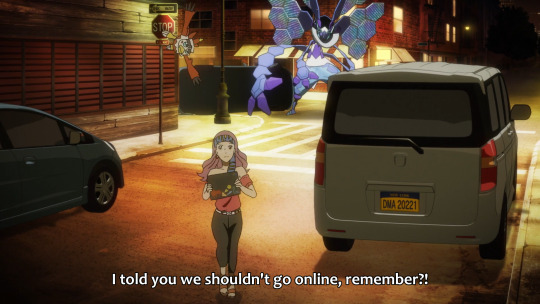
In general, the 02 quartet (my shorthand for the four human characters introduced in 02 who weren’t in Adventure, namely Daisuke, Ken, Miyako, and Iori) have a position in Kizuna that you can call “shockingly favorable” in that they’re kept safely out of the most dangerous parts of the plot in ways the others aren’t. This especially sticks out when we get to the Eosmon incident reaching its climax, when Takeru and Hikari are placed in the same situation as their Adventure seniors, despite the movie and its surrounding media generally portraying them closer in line with the others in the 02 group than the Adventure group.
To be a bit blunt about it, the obvious main reason the story is set up this way is meta -- a lot of the climax’s effectiveness depends on the audience getting sensory impact via recognizing things from the original series (including 02 as well; how convenient it is that all of the international Chosen are in the positions 02 fans would recognize!), and so it’s obvious that said climax would evoke imagery related to the series that was Digimon Adventure, while the 02 quartet would be treated extra-kindly by the narrative due to the need to give them compensatory action screentime given certain real-life events. But just because the originating reason is meta doesn’t mean there isn’t also a story reason for it, especially considering the relevance of 02′s themes in Kizuna’s narrative, and the surrounding circumstances regarding both series.
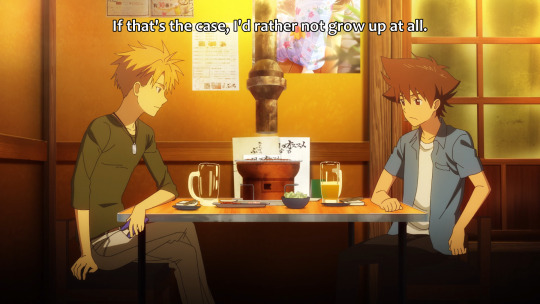
Before we get into anything else, the first thing that needs to be established is that Menoa and Eosmon’s lure is pretty obviously depicted as working on a subconscious level. This is why everyone else in the narrative agrees that what they did is “kidnapping”, despite her insistence that she’s just doing what they wanted. While they can’t not admit to having moments of weakness, nevertheless, it’s likely that most if not all of the people Menoa kidnapped consciously knew better and had learned better lessons than this a long time ago; if Menoa had consciously offered Neverland to her victims, most of them would have probably said no! But as Daisuke said back in 02 episode 49 -- when he witnessed his own friends being subjected to something similar at the hands of BelialVamdemon -- there’s no sin in having feelings of worries or troubles (and, by extension, irrational feelings in general), and Eosmon’s abilities and Neverland happen to be able to directly target them. In fact, we ourselves got to witness this internal conflict when Menoa made her direct offer to Taichi and Yamato to join Neverland; they briefly considered it because of the circumstances, but were snapped out of it quickly with Agumon and Gabumon’s intervention, and were really, really mad at themselves for considering it shortly after.
We saw the process of how Ayaka became one of the kidnapping victims at the beginning of the movie -- it happened right after she complained that she wasn’t fond of the idea of becoming an adult at this point. So it does lend some truth to the idea that Menoa’s working off something with these cases, and that Eosmon did specifically target people who had those wishes to some degree. Moreover, note carefully how this kidnapping (and some others in the movie) is portrayed; Eosmon doesn’t actually emerge from the device in question (it’s obvious that nobody notices the giant butterfly monster), and the victim’s consciousness and partner are whisked away thanks to being caught by the device camera. In Ayaka’s case, because her phone was sitting on the table, pointed at her. The fact that this is not how the kidnappings are portrayed all the way to the end of the movie is a very significant point.
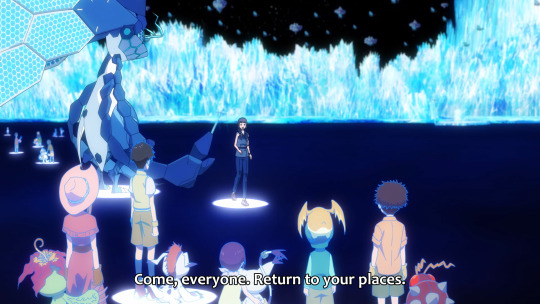
So let’s talk about Neverland and its construction. The whole thing is based on Menoa’s own very, very warped view of what “happiness” is. This means that Neverland is only an “ideal world” or “utopia” in a way that makes sense to her -- and once you learn the full extent of her backstory, it becomes apparent how she came to the mentality she did, and, more pertinently, how she ended up projecting that on everyone else. Hence, how she came to decide that she knew better and should decide for everyone, because she thinks she gets the right to decide on everyone’s happiness based on her own experiences. (She doesn’t.)
The way Neverland is constructed is that everyone has “their own places” -- their own individual islands that recreate “memories” of everyone being able to be together with their partner, forever. So in other words, it’s not just that everyone’s being turned into children; it’s that they’re being kept in an eternal loop of their best memory and unable to “move forward”.
Here are three very significant parts about this, which will be important to keep in mind as we go deeper into this analysis:
Menoa’s view of this utopia requires people to be separated -- for all she claims this is a utopia where people can play together, she discourages fraternizing and encourages everyone to stay only with their own partners. This is, presumably, to lessen complications with said memories, because what might be one person’s best memory might not be for another, and also because she thinks one person being alone with their partner is happiness enough in itself. As we’ll be seeing later, this is very much not the case for everyone.
A lot of these memories in Neverland -- and Menoa’s own mentality, as we eventually find out -- are heavily dependent on the concept of rose-colored nostalgia, or, that is to say, conveniently omitting or forgetting about all of the bad things about one’s past in order to portray it as such a wonderful thing that nobody should ever move on from. And in the end, that probably applies to real-life childhood in general, too; as much as it’s so often put on a pedestal for being a time when “everything was simpler”, you can also easily argue that it wasn’t actually all sunshine and roses, it’s just that the process of forgetting things or the grass-is-greener phenomenon makes you conveniently forget all of the bad things and frustration that came with it too.
Because the concept of needing to stay in the past forever is based on the idea that it’s preferable to growing up, these memories thus have a strong premise of “things you cannot do anymore” -- something that, bar going back to the past and never moving from it, you will never get back or be able to sufficiently recreate. It’s unlikely the islands themselves are one-to-one recreating their specific memories in the way they happened, but rather seemingly presenting them the opportunity to “constantly do over” things they want to recreate or do again, as long as those things are associated with a happy thing that isn’t as easily accessible anymore.
In the case of the five Adventure group members who were brought into Neverland, these “memories” that they’re seen trapped in are, of course, from Digimon Adventure.
It is of course foolhardy to pretend that the main reason for this wasn’t meta, since, of course, there’s a huge point to be made here about the relationship between Adventure and nostalgia, plus the simple fact that this is what we’re most likely to recognize and be nostalgic for, but it also makes sense within the context of the narrative; Menoa has an extreme bias towards the happiness of her childhood revolving almost entirely around her partner, and, of course, Adventure was when these kids first had their most formative meetings with said partners. (This is also probably the in-story explanation for why the other international Chosen from 02 appear at or close to their 02 selves; beyond the meta reason of it being a way to make them recognizable when we only knew them for such a short time, it also approximates when they met their own partners.)
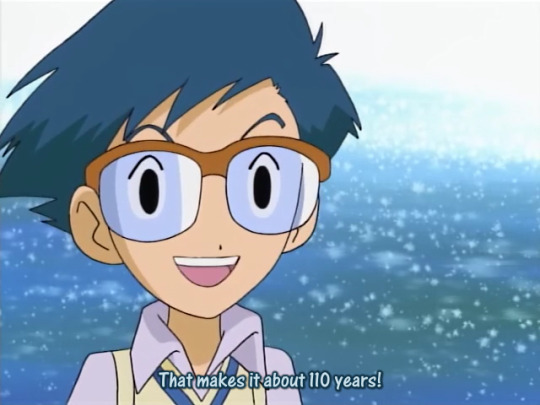
On top of that, Adventure was not all sunshine and roses for its cast! After all, there was a ton of drama and emotional trauma and stress from running away from enemies trying to kill them, or trying to save the universe, and glossing over that is also foolhardy -- but this is also where our concept of “rose-colored” comes in. Menoa’s not offering the kids the entire adventure; she’s offering them a small slice of the moments when they were able to be happy, the moments that made them want to stay in the Digital World for a whole 110 years’ worth of time at the end of Adventure -- she’s basically offering them that very thing they wanted and had ripped away from them at the end of Adventure when the time dilation phenomenon stopped. Take out all of the bad stuff, and suddenly, the events of Adventure seem outright romantic -- it’s the whole school of thought that fueled Adventure’s inspirations of Two Years’ Vacation and Stand By Me, in which a lot of stressful stuff happened and yet you still can’t help but think there was something magical and romantic about it. (I cannot emphasize enough how much of a cultural impact Stand By Me in particular had in Japan, to the point where it’s considered the epitome example of a “coming of age story” and “summer adventure”.)
Let’s take a closer look at what’s on each of the Adventure kids’ personal islands:
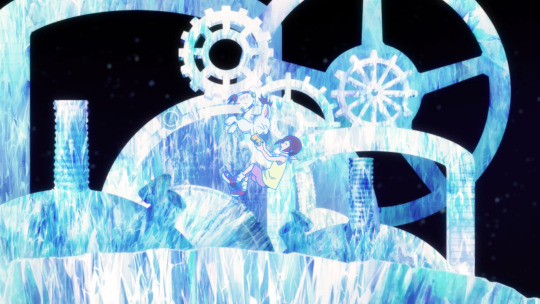
Hikari is probably the one in the most unusual position among this group, since she didn’t join until over the halfway point, and the first arc she got involved in revolved around everyone wanting her and Tailmon dead. Thus, the memory we get to see her involved in is the Numemon factory in Adventure episode 49. Although this was in the middle of the Dark Masters arc (and, uniquely, very close to the end of the series where a lot of stress was involved), due to the limited amount of time she got to be in the Digital World, this was the one time she got to do something really cool and awesome and impressive for herself that had nothing to do with the others (again: see how the requirements for these islands require not fraternizing with friends and being isolated).
One thing that the Adventure kids got to do that wasn’t in play in 02 was that there were a lot of “romantic experiences”, involving strange adventures and things like phone boxes on the beach, and, very significantly, “Digimon friends” -- ones that the kids made a huge note of bonding with over the course of the series. This contributes to a certain sense of whimsy that was involved in this adventure that the 02 quartet ultimately never ended up getting to foster, because the lack of the time dilation phenomenon meant that they spent much less time in the Digital World overall (more on this in a bit), and once the time dilation stopped, it meant that these kinds of “whimsical” experiences were ones the Adventure group was permanently torn away from once that adventure ended. That dropping of the time dilation phenomenon not only cut that initial adventure short, it also prevented any future ones like it from ever happening again.
And, of course, this is an extremely rose-colored memory, because shortly afterwards, the Numemon ended up all sacrificing themselves for Hikari. But hey, when you’re in a space that can eternally loop good memories forever, everything’s fine as long as we conveniently never get to that part, right?
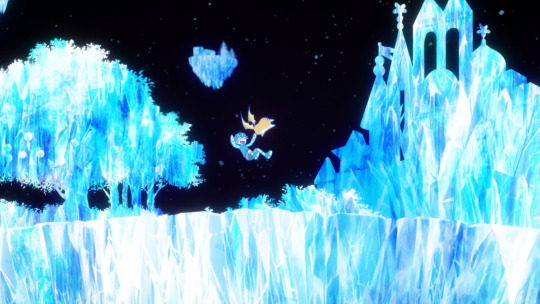
From this point on, you’ll notice that all of the memories that show up on these islands are from before the halfway point of the series, because after that, things started getting increasingly pear-shaped and much more difficult to disentangle the stress, mental breakdowns, and witnessing of deaths from. (Hikari’s probably wouldn’t have come from such a late incident if she hadn’t joined the party so late.) Although there still were looming threats around the horizon in the beginning of Adventure, they weren’t always immediately apparent to the kids at every turn, and in fact, the beginning of the series involved more of a “well, we’re in this situation and probably need to get home somehow” aura than it did a “the world is in danger and all of us might die” aura. (It’s also in direct contrast to the 02 group, who were given the details of the crisis and what they needed to do roughly from the get-go.) So in other words, if you want to have some rose-colored nostalgia about the romanticism of this adventure, these are some of the best episodes to pull from.
Takeru’s is obviously from the Village of Beginnings, corresponding to Adventure episode 12, when he and Patamon got to have a fun romp through the village, play together, meet Elecmon, and learn about how Digimon are born. It’s also very much something he did without the others, only with Patamon, and had a lot of “fun and happiness” associated with (later solo episodes with Takeru had a lot more upsetting events more intrinsically tied with it), and, again, it’s extremely rose-colored -- it wasn’t even a day later when Angemon died in front of Takeru’s eyes. But hey, that’s even more reason to pick a moment from before then to stay in forever! Can’t have trauma if that trauma never happens, right?
Also, note that Takeru is one of the few here who’s confirmed to be aware of the partnership dissolution issue at this point, and, unlike Koushirou, isn’t confirmed to have accepted a forward-thinking mentality about it yet -- this is a very, very prime time for his fears of being separated from Patamon again to have a nasty relapse.
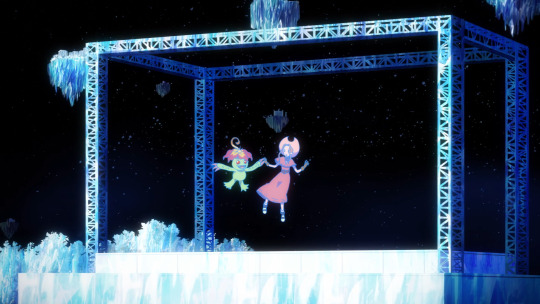
Mimi’s is the closest to the midpoint of the series, from the affair with the Geckomon and Otamamon castle (from Adventure episode 25; the metal railings here resemble the stage railings from that episode). It’s from the period of time that was a “lull” -- when nobody actually knew about the encroaching threat of Vamdemon quite yet, and for all it was worth, there was no longer any danger. So Mimi got to live happily in the comfort of the castle and play around with the Geckomon and Otamamon...which, of course, also conveniently excludes the affair where she went on a power trip, made everyone miserable due to her selfishness, and immediately felt guilt over it.
Mimi’s associations with this incident are not entirely negative; she was clearly still having fun singing for them in the end (note how her clothing during that scene involved her regular outfit, which she has on here), and she still had a positive impression of her relationship with the Geckomon and Otamamon as per Adventure episode 47 and 02 episode 6 (and as per 02 episode 15, even though everyone’s initial encounter with TonosamaGeckomon ended badly, nobody actually has any lingering grudge against him). So if you filter out that whole affair with the power trip and the resulting embarrassment, it was a meeting with a bunch of fun Digimon friends, a romantic little castle, and a fun stage session where Mimi got to sing.
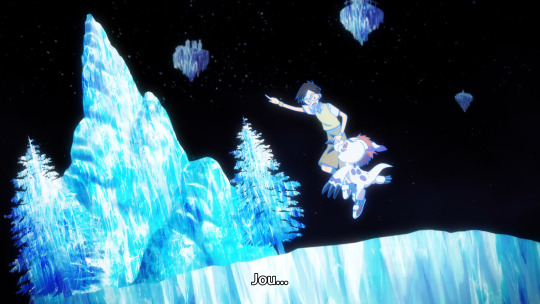
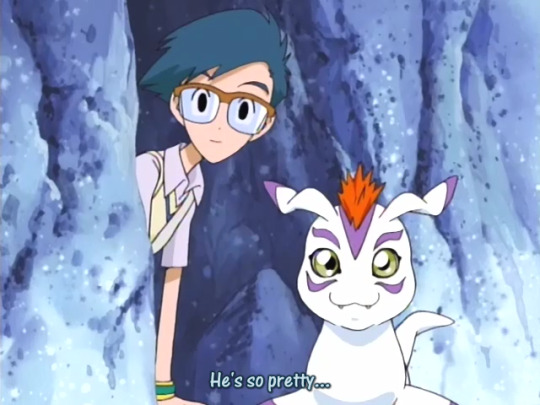
Jou’s refers to the Infinity Mountain incident in Adventure episode 7, and even from the get-go you can already see the level of rose-coloredness in Jou’s gesture -- in the actual incident depicted, Jou went to the mountain out of a sense of obligation and stress, and the initial climbing involved him having a bit of a bickering moment with Gomamon. But once they did get up there, it was actually their first time the two of them got to really “bond” -- and not only that, their encounter with Unimon had Jou even look on it with fascination, before the Dark Gear had ever come into play.
So in the end, Jou really would have found the incident enjoyable and worthwhile if not for that, and from there you can understand why it would be appealing for him to revisit that setting and finally get to have a bit of calm fun with Gomamon there -- especially since, again, the Neverland islands have a very strong preference for isolating the kids from others, and this was one of the few times Jou got to have a major moment of calm like this alone with Gomamon, with a slight reprieve from the constant feeling of stress and duty.
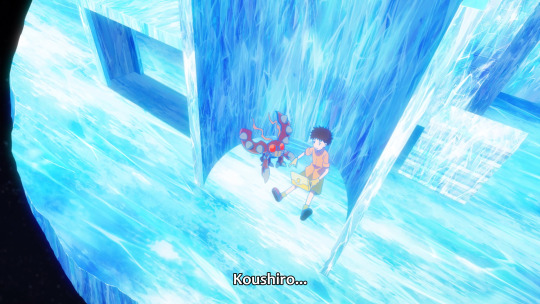
Koushirou’s most prominently resembles the “sealed room” in the factory in Adventure episode 5, and while Koushirou certainly continued to make a large number of exciting discoveries after that, this was the situation where Koushirou, with no one else but Tentomon to worry about in the immediate vicinity, got to have the largest sensation of “novelty” -- where he first came upon the fascinating discovery of data manipulating reality around him, and he actually got to see the world change around him by wiping things off a wall.
And, of course, there were other things going on like Tentomon confronting him with his first existential crisis, and how things quickly went south with Andromon...but we don’t have to remember that part for now, right?
An interesting thing about Koushirou: the circumstances of how he was “kidnapped” in the first place are actually somewhat obscured compared to the other four in this scene, since Menoa presumably needed him conscious in order to get his list out of him, resulting in his kidnapping scene also involving an emerging Eosmon and not having him be instantly taken the way we see Takeru and Hikari (more on this in the section below). It’s thus unclear whether he’d be in their boat had his position in Menoa’s plan not been unusual -- said memories in Neverland involved “gathering information and learning more”, something he still actively involved himself with even after the events of Adventure, and he’s also the first one to reach a forward-thinking mentality about the partnership dissolution phenomenon. Either way, once he was already dragged into Neverland, it’s natural that the place could find a good memory for him in the same way it did for the other kids who were “manually” dragged in, but the actual method of entry and whether Koushirou's post-Adventure life put him in a mindset similar to that of the 02 quartet (again, see below) is a bit ambiguous.
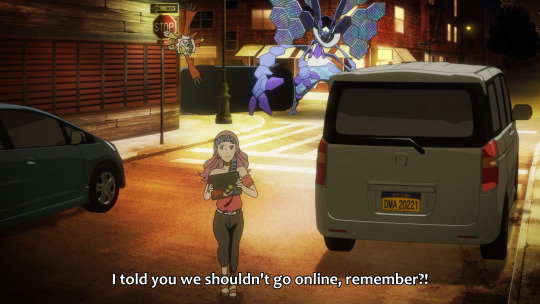
So here’s an interesting part about how the 02 quartet gets involved in this story: their own encounters with Eosmon happen during a part where the method of kidnapping has abruptly changed. As many have pointed out, this is also when the degree of the targets Menoa wanted had also suddenly escalated, because while her previous claims had involved the idea of kidnapping like-minded adults (who, indeed, were entertaining thoughts of nostalgia to even some degree), she was now kidnapping actual children, ones who weren’t even nearly at the point of the supposed drudgery of adulthood that Menoa claimed they would eventually have, and with her arrogantly deciding she knew better for all of them. The part that becomes particularly intriguing about this is that the exact same thing happens with Miyako -- she is explicitly stated to have connected her laptop to the Internet, resulting in an Eosmon physically emerging and chasing her instead of instantaneously snatching away her consciousness through a camera like her own fellow 02 group members Takeru and Hikari.
So in other words, the 02 quartet’s favorable position in this incident doesn’t just have to do with being lucky enough to have gotten Koushirou’s warning about the Eosmon early; they (or at least Miyako) also seem to have a certain degree of outright immunity to it, much like the young children who aren’t old enough to have nostalgia yet. (Also, keep in mind that Takeru was caught thanks to a security camera; “excess caution with electronic devices” alone wouldn’t necessarily have guaranteed their safety.)
Recalling that, for the most part, Takeru and Hikari are usually treated more like 02 group members in the context of this narrative yet are, in this one case, treated as being potentially nostalgia-prone, it stands to reason that the main difference between the two of them and their fellow members in the 02 group is the fact that Takeru and Hikari went on the adventure in 1999, and the quartet did not. So in other words, the reason the 02 quartet isn’t as prone to this is not so much that they’re fundamentally different-minded people, as much as they have a distinct lack of an experience they can be attached to the way the Adventure group is to their own 1999 adventure. (Remember that Menoa’s kidnappings work heavily on subconscious feelings; you can’t blame anyone for having these kinds of feelings no matter how much they’ve consciously learned.)
As I said earlier, it’s foolhardy to pretend that Adventure was all sunshine and roses, and, likewise, it’s also foolhardy to pretend that 02 was nothing but suffering for everyone involved. Both series involved a lot of balancing of funny, silly moments to be treasured as much as they involved stress (which is why people are so attached to both, after all). So the question is not so much how happy they were in their childhoods as much as the nature of what that happiness came from, and what relation it has to their current lives. And when you look at what experiences the 02 quartet had back in 02, you might notice a thread of the fact that it is significantly harder to romanticize the events of 02 than it is Adventure.
Let’s put it this way: Let’s say that the 02 quartet was kidnapped into Neverland and placed onto islands that fit Menoa’s view of happiness. What, exactly, would you pick from 02 itself that would work? What kind of “happiness” did they have back then that’s so romantic, so impossible to replicate now, that they’d want to go back to because it’s better than their lives now once you disentangle all of the bad stuff?
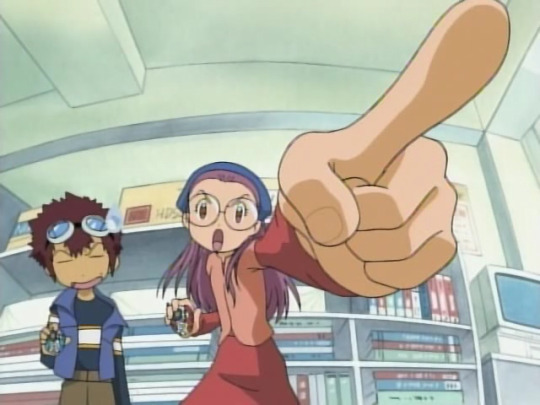
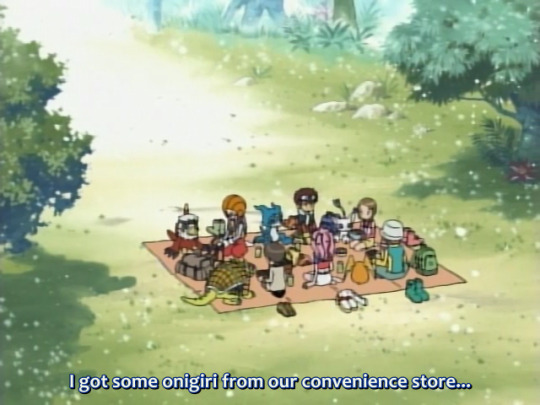
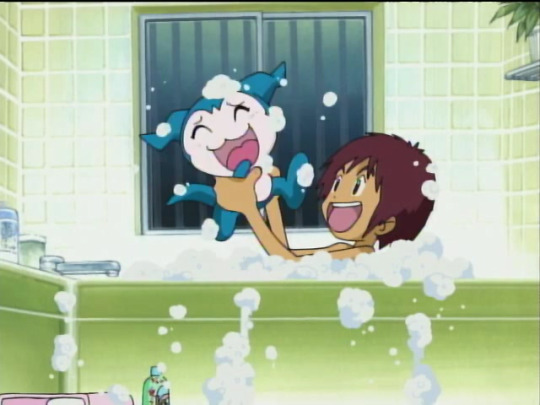
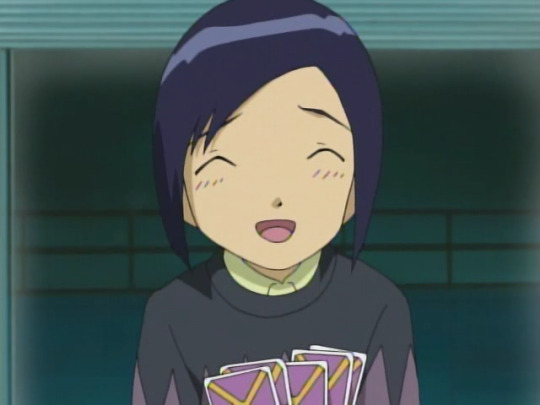
...Not much. Not much at all, actually. Hanging out in the computer room together? Doesn’t seem like they cared that much about the computer room part as much as the fact the others were there bantering with them (which would put a huge nail in Menoa’s islands mandating isolationism). Going out on a picnic together? No reason they can’t just go on another picnic again (and if the BD box is to be believed, that’s exactly what they did, and they even added Ken to it while they were at it). Hanging out with their Digimon in real life and doing silly hijinks? They’re...probably still doing that now, actually. Getting to find true happiness at a Christmas party? That’s a party from the real world (again, something they most certainly continued to do thereafter), one where the happiness came not from the romanticism of anything that happened to do with some adventure, but just the happiness of being surrounded by true friends, which, again, Ken is still clearly getting to do by the time of Kizuna.
Once you look at the circumstances of what the “adventure” of 02 was to the 02 group, you may realize that it doesn’t really resemble the traditional romantic image of an “adventure” much at all. Sure, they were blessed with being able to regularly go back and forth between the Digital World from the get-go, but it meant that -- especially without the time dilation in play -- the Digital World became much less of a picturesque area associated with a one-time memorable adventure as much as something they had to squeeze in their after-hours while juggling it with their school. The circumstances they encountered their Digimon and the Digital World in were at a point where it had a certain level of “mundane” to them, compared to their seniors; it wasn’t a “fantasy adventure in the Digital World” when so much of the story also revolved around real-world events as well, and you can’t really find many “mysterious fantasy” events in 02 that resemble much of those in Adventure. The closest might be...Daisuke seeing Numemon pile out of a vending machine in 02 episode 1? (Not very romantic.) Daisuke getting chased around by a Tortomon in 02 episode 22? (Really not very romantic.) Iori getting to tour the ocean with Submarimon? (Implied to more about relief from how much he was holding himself back than the uniqueness of the experience in itself.) Ken’s long-time-ago flashback from 02 episode 23 about meeting Wormmon for the first time? (Defeating a Gazimon is hardly that impressive; the important part was him bonding with Wormmon, which he’s...uh...still doing now?)
There weren’t any lasting relationships with Digimon friends like the ones in Adventure, maybe encountering some civilians once and not seeing them much again after that, especially since the lack of time dilation meant not getting to spend as much time visiting them much at all (think about all of the really fun experiences that the Adventure group probably had that weren’t shown in the actual Adventure TV series, just because it probably didn’t have enough drama that would make a good TV episode plot). This means that there’s very little, if at all, of 02 that represents something this group would want so badly to recreate that they can’t already do now; everything from back then was either something comparatively mundane, or something they actually would not want back. Unlike with Adventure, where a lot of the kids had irreplaceable moments that only happened to be spoiled a bit later, a lot of the “really awesome accomplishments” from the first half of 02 were explicitly against Ken, someone whom they’d probably rather not dwell on fighting again because of how much they love him now; many of those good memories are “retroactively poisoned” because of that, and it’s much, much more difficult to make a rose-colored version of those memories disentangled from the bad, because of how fundamentally intrinsic that retroactive poisoning becomes.
And, when you think about it, the mandate of “you have to be alone on your own island” would pretty much break these four in particular, especially since the 02 group is portrayed as the type to need mutual support more than anything else, and so many of the events that represent “happiness” specifically involved the happiness of each other being present. It’s not to say that the 02 quartet had no moments of happiness when alone with their partners, but, rather, being with each other provided so much more fulfillment to them that Menoa’s offer of a memory of their past that requires them to be alone probably pales in comparison to anything they could do now in each other’s presence. Maybe, like with the other kids depicted in these scenes, they could be buttered up with something nice if you successfully got them into Neverland, but it’s not like they have any real wistfulness about anything from back then to the point that they’d be subconsciously drawn towards it instead of having to be dragged in kicking and screaming -- and especially in the case of Miyako, the same one who managed to evade an Eosmon here, who was offered a similar “chance to be alone” back in 02 episode 49 and didn’t take very long to decide she hated it because of how much of her happiness comes from getting to be with others.
By the time of the end of Adventure, the Adventure kids’ ideal situation was to have a romantic and fun 110-year adventure with the sights and fun of the Digital World, with all of the weird fantasy surrealism and less of the world-saving, and that’s something they never got to have (and that Menoa was inherently offering them). By the time of the end of 02, the 02 quartet’s ideal situation was...to find a way to get back to normal life and hope their friend feels a little better, and that “ideal situation” is still persisting even into the time of Kizuna, so it’s hard to imagine they really want more than that.
And, again, when you extrapolate this into what Kizuna’s trying to say about real life, adulthood, and nostalgia: it is true that Menoa’s projecting a belief that absolutely does not apply to everyone. While it’s true that many people feel that childhood had a certain kind of magic that you can’t get back in adulthood, there are possibly just as many people who aren’t really all that nostalgic to begin with, either due to trauma or something about their childhoods being miserable, or, even in the lack of such miserable events, simply enjoying the added freedom and expanded range of ability that comes with adulthood to the point they consider it to be more than worth the tradeoff. The 02 group basically represents this crowd -- Ken’s life right now beats out his past in pretty much nearly every respect, and while there are certain concerns about not being able to meet up as often, they’re finding the same ways to do the same kinds of over-the-top hijinks they did back in 02, with arguably even more range now that they get to exploit Digital Gates to do world travel and act without worrying about their parents. They’re basically like the adults who see Menoa’s creed of “childhood is better because adulthood sucks” and go “sorry, can’t relate.”
That said, remember: this isn’t because the 02 quartet is somehow mentally stronger or anything, but rather just a byproduct of what experiences they've had and haven’t had. Takeru and Hikari’s position is unique here -- for all intents and purposes their mentalities are portrayed as closer to the 02 group’s, but they did still have the experience their seniors had and are thus still capable of being close to their position in this one regard. In the end, everyone is different, it’s no sin to have feelings based on those differences, and “being able to relate” to one’s position is also an important key here; because the 02 group’s position is so alien to Menoa’s, it’s unlikely they could have tackled her problems nearly as intimately as their seniors could.
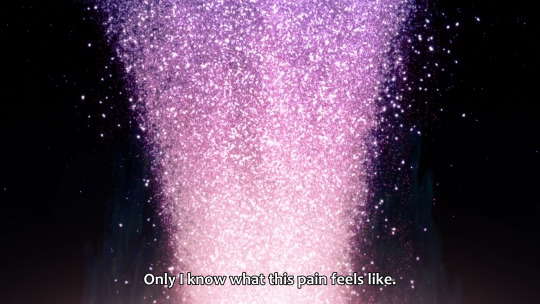
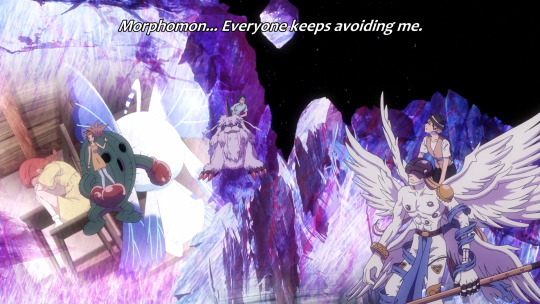
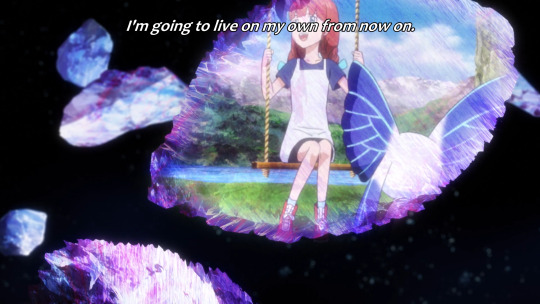
What we learn about Menoa’s backstory establishes that she forced her vision of nostalgic happiness on everyone based on her own perception of her past in such a warped, rose-colored manner. She conveniently omitted or forgot about details such as the fact that her life as a “child” involved feeling ostracized from everyone and that she herself was guilty of neglecting Morphomon. Not only that, she herself claims that she’s the only one who knows what this feels like -- that nobody relates to her -- and thus, you can see that she came to her conclusion that her experiences are universal by the power of sheer extrapolation, hence why she thinks everyone inevitably loses their partner upon reaching adulthood despite pretty significant amounts of evidence to the contrary. (For all it’s worth, the fact that she still considers herself as having “become an adult” at 14 just because she got into university at that time is pretty conceited.)
Menoa’s existence as being so starkly in contrast to the 02 quartet’s is very likely because her entire character was built up from the ground that way -- her entire backstory of skipping grades into university is heavily based on 02′s initial development premise and Ken’s own backstory, meaning she explicitly represents the path that Ken and the other 02 kids chose not to take, and the timing of certain events in her backstory seems almost deliberately engineered to prevent her from witnessing some of 02′s important answers to Kizuna’s conflict, most notably her inability to witness the final battle and the important lessons everyone present learned about following one’s dreams without restraint, and how that relates to one’s partner. Menoa’s mindset is basically that level of incompatible with 02′s themes of “moving on from the past” and “not caving to arbitrary societal expectations”, to the point her character could only get to this point by going out of the way to exclude her from 02′s story and events, because she’s fundamentally built as a character who started off on a very similar path as them (getting to integrate her Digimon partner into normal life, having a similar backstory to Ken) before veering off on a very different one.
Moreover, about that backstory, and the reason why 02 was conceived as such a criticism of the concept of “skipping grades into university”: the concern that someone in this position will be kept from making any friends their age. Menoa puts the moment of “being with one’s partner” on such a pedestal and considers herself to be “the only one who knows what this feels like” partially because she has a fundamentally warped view of friendship itself. Even the Adventure group, which may not have had quite the absurdly tight level of bonding the 02 group had, still broke out of the illusion via Taichi and Yamato reaching out to them, and Taichi and Yamato giving each other mutual support helped them make the decisions they did in the movie. The movie is titled “bonds”, and “bonds” doesn’t just refer to those between human and Digimon partner, but also bonds between each other; Taichi, Yamato, and Sora slowly drifting away from the others at the start of the movie has very strong relevance to their respective existential crises, and the role that Taichi and Yamato play in supporting each other, and Mimi’s in supporting Sora in To Sora and even beyond that, say a lot as to how they’re already expected to be much better off than Menoa was.
It’s not that adulthood is inherent drudgery; it’s that Menoa’s own circumstances really are that warped to the point where she sees her very unusual experiences as fundamentally synonymous with how life is supposed to work in general. She was so obsessed with “being independent”, “being useful to the world”, and “being on her own” that she had no mentality of making friends or connecting to others besides her own partner, and once her partner disappeared, she seemed to make no attempt to rectify that. So of course her life in university following that ended up being not nearly as fulfilling as she’d hoped, since she was getting no real emotional support from anywhere, and, as 02 itself also drove home, apparent “approval from society” only ever makes you as “happy” as a Dark Seed-implanted child if you’re not also being supported by your loved ones in the process. Her adulthood sucked, and she decided that everything about her rose-colored childhood meant that childhood is fundamentally superior in every way, and thus decided that keeping everyone else in it would be “saving” them from the terror it involves -- even though (even if they’re not aware of the specifics of everything) the 02 quartet is not the kind to be able to relate to this at all, and, eventually, Taichi and Yamato, who do understand her position a bit better due to their own experiences, are able to get her to reconsider a little.
#digimon#digimon adventure#digimon adventure 02#digimon adventure last evolution kizuna#kizuna spoilers#shihameta
104 notes
·
View notes
Note
omg thank you so much ily, i just never know where to take the story? like i know specific scenes i want to write but i never know how to get there or like filler scenes or just what scenes are essential to the plot and character development, i’m so bad at writing that stuff 😭😭
i love you too!!!! omg okay here we go *cracks my knuckles* *hurts myself* ow
let's say, hypothetically, we're writing an e2l arc! (if you have a specific au arc, we can do that too! just lmk! i love stuff like this djkfhksjd) and we have a scene of these two just . hatefucking it out. but we don't have anything building up to it. what can we do?
mainly: keep asking questions, but mainly ask "why?"
why does the main character hate the love interest? why does the love interest hate the main character? if it was based on a misunderstanding, why haven't they cleared it up yet? if it was based on an actual wrongdoing, why did the incident happen? how did they react? each of these questions, when answered in detail, can give great scene ideas! if the fic itself isn't supposed to have all this backstory, then the questions still provide excellent context for scenes; they can bump into each other in public and make jaded references back to the root of their issues, they could talk to respective friends about it, etc.
if MC hates LI (love interest), are the readers supposed to agree with them? if so, we need reasons for the readers to see the LI in the same light the MC does; if not, we need reasons for the readers to see that it's actually just a massive misunderstanding.
if MC hates LI because they've known each other since kindergarten and LI used to pick on her, show us that! show us, maybe, that either the bullying was REALLY bad, therefore justifying MC's hatred all these years, or the bullying persisted or went without an apology. (however, toe the line carefully of "bullying" because a lot of e2l arcs can get very flimsy if the inciting incident is Actually Genuinely Bad and even Deplorable because then the readers just think MC's an idiot for liking LI. maybe pestering could've been minor in kindergarten, LI apologizes later on, but another incident happens that reminds MC of kindergarten that's actually a misunderstanding but MC doesn't process it as such! just an idea)
so, again, going back specifically to our hatefucking scene.
"these characters are hatefucking right now." why are they so mad? "because they got into an argument." argument about what? "they fought because he kept eating her food behind her back." why is he eating her food behind her back? "he's a dick." is he a justifiable dick? "no." then why does MC even let her food around him in the first place?
these might sound silly, but they're addressing potential plot holes that could come up!! i'm a very physical and hands on planner so if i were stuck like you, i'd take maybe index cards (i use cut up slips of paper to save the trees, but you might need more space) and write out what scenes we DO know. and then walk yourself through it. does this remind you of your real life experience at all? of any media you've consumed? do you like how they handled it there? if so, how can you emulate their response? if not, how can you do it better?
any scenes that answer your "why" questions are essential to the plot! any scenes that answer why someone is the way that they are, why something happened / is happening / is about to happen / will never happen, or any similar questions, will all be essential to the plot! don't overload us with exposition, though, because that's exhausting; try to keep us in the present with small references back to past events!
as for character development arcs, have your beginning and end point. maybe MC's a raging asshole that learns to care about people. you'd need to know WHY MC's a raging asshole. did they go through something when they were younger that made them have a hard time getting close to people? what would be the catalyst of a personality shift? could an extremely persistent, reliable, and kind person be a helpful character for them?
if introspection isn't really your thing and you'd have a hard time reading into why someone would be a dick or something like that, i bought this book almost a year ago (i never read it, tbh, bc i don't really struggle with this but i do find it fascinating from a psychological standpoint) called The Emotional Wound Thesaurus: A Writer's Guide to Psychological Trauma off of amazon!! it's $18.99 for a physical copy (which i have) or $5.99 for a kindle digital copy!! tbh if you really think the book could help and you don't have the funds to get it, you could message me and i could see if anything in the book could help!
i'm worried that i just rambled a whole bunch, but i really hope this was helpful even a little bit!! if you have a specific plot, i can try and help you with that!! i didn't use any resources to answer this, just my own bank of knowledge, but i can probably try and find some resources for you too! or at least point you in the right direction!
7 notes
·
View notes